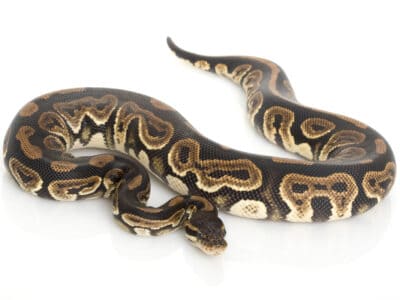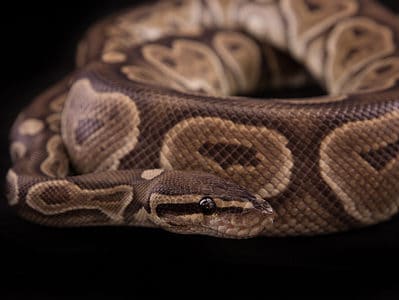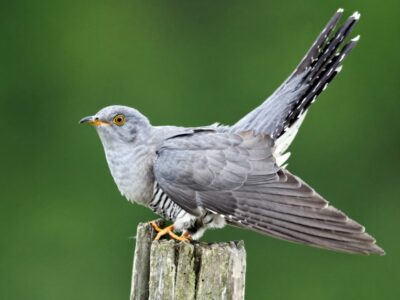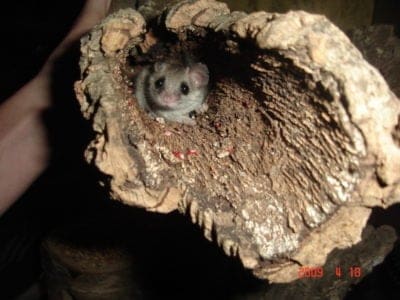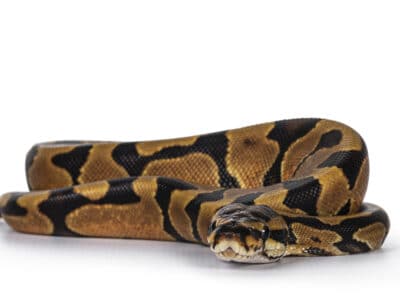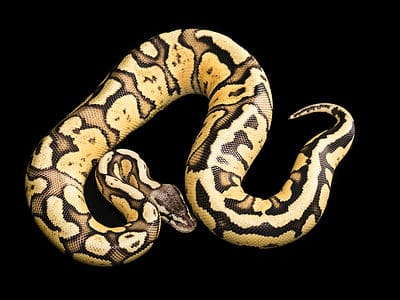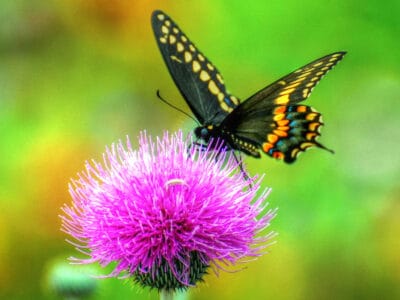Below you can find a complete list of Nigerian animals. We currently track 273 animals in Nigeria and are adding more every day!
Nigeria is a land of diverse ecosystems, including deserts, plains, swamps, mountains, and jungles. The third-largest river delta in the world is within its boundaries. Therefore, you can find many different types of animals in Nigeria. There are over 22,000 vertebrate and invertebrate species in Nigeria.
Several native species remain in Nigeria, such as the elusive pangolin, hyraxes, cuckoos, puff adders, and hoopoes. Unfortunately, many of these animals are facing threats of endangerment or extinction.
At least 21 bird species may become extinct as a result of deforestation for agricultural benefits.
The Official National Animal of Nigeria
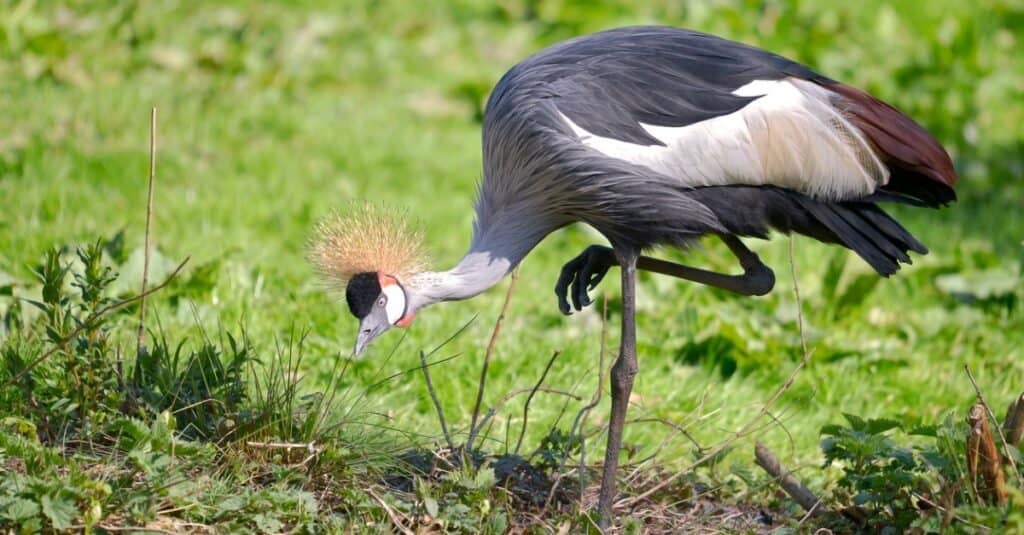
A Black Crowned Crane (Balearica pavonina) on one leg, looking for insects. This type of Crane bird is endemic to sub-Saharan Africa.
©iStock.com/Musat
The black-crowned crane is the official animal of Nigeria, endemic to the country and thought to be a sign of prosperity.
Two different species of black-crowned cranes live in Nigeria. The subspecies on the western end of the country are significantly threatened by loss of habitat.
The official national animal of Nigeria is not the eagle, but rather the black-crowned crane. This magnificent bird is found in grasslands and wetlands across Africa and is known for its striking appearance, with a black crown, white cheeks, and a bright red throat pouch.
The black-crowned crane is highly revered in Nigeria, where it is a symbol of beauty, grace, and strength. It is often depicted in art, textiles, and sculptures, and its image is used in many official government logos and emblems.
The bird also plays an important role in traditional African folklore and is seen as a messenger of the gods. Despite being a national symbol, the black-crowned crane is considered endangered due to habitat loss and hunting.
Efforts are being made to protect this beautiful bird and preserve its habitat, both in Nigeria and throughout Africa.
Rarest Animals Found in Nigeria
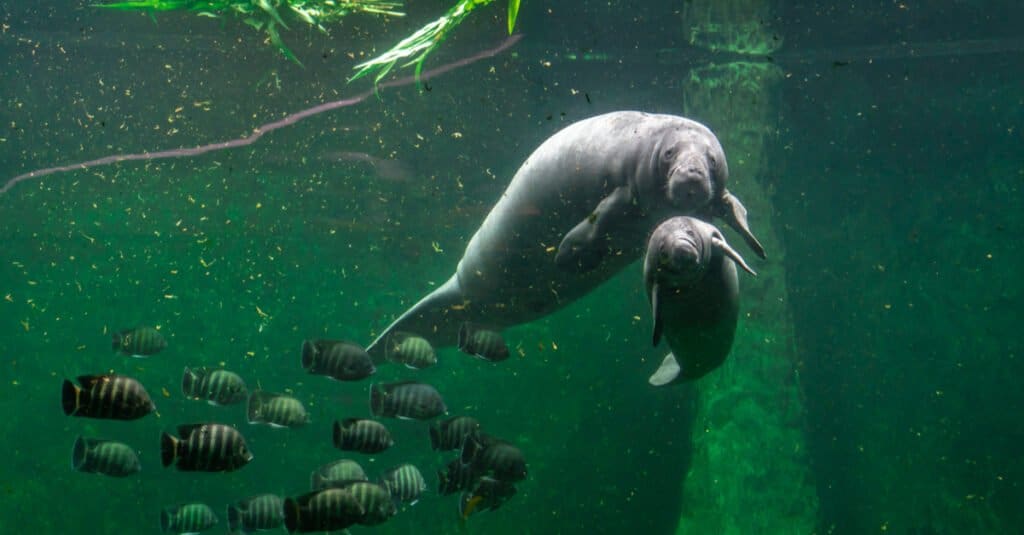
his large aquatic mammal is found in rivers and coastal waters throughout West and Central Africa, including Nigeria. It is listed as vulnerable due to hunting and habitat destruction.
©Lukasz Machowczyk/Shutterstock.com
Nigeria is home to a variety of unique and rare animal species, many of which are found nowhere else in the world. Unfortunately, many of these species are threatened with extinction due to habitat loss, poaching, and other human activities.
Here are some of the rarest animals found in Nigeria:
- Cross River gorilla: This critically endangered gorilla subspecies is found only in the border region between Nigeria and Cameroon. It is one of the rarest primates in the world, with only around 300 individuals remaining in the wild.
- Nigerian-Cameroon chimpanzee: Another critically endangered primate found in the same region as the Cross River gorilla, the Nigerian-Cameroon chimpanzee is estimated to have a wild population of fewer than 6,000 individuals.
- African manatee: This large aquatic mammal is found in rivers and coastal waters throughout West and Central Africa, including Nigeria. It is listed as vulnerable due to hunting and habitat destruction.
- African forest elephant: This elephant subspecies is found in the forests of Central and West Africa, including Nigeria. It is considered vulnerable due to habitat loss and poaching for its ivory.
- Pangolin: Both the African white-bellied pangolin and the giant pangolin can be found in Nigeria. These unique mammals are covered in scales and are highly valued for their meat and scales in traditional medicine, making them vulnerable to hunting and illegal trade.
Efforts are being made to protect these and other rare species in Nigeria through conservation initiatives and education campaigns.
Largest Animals found in Nigeria
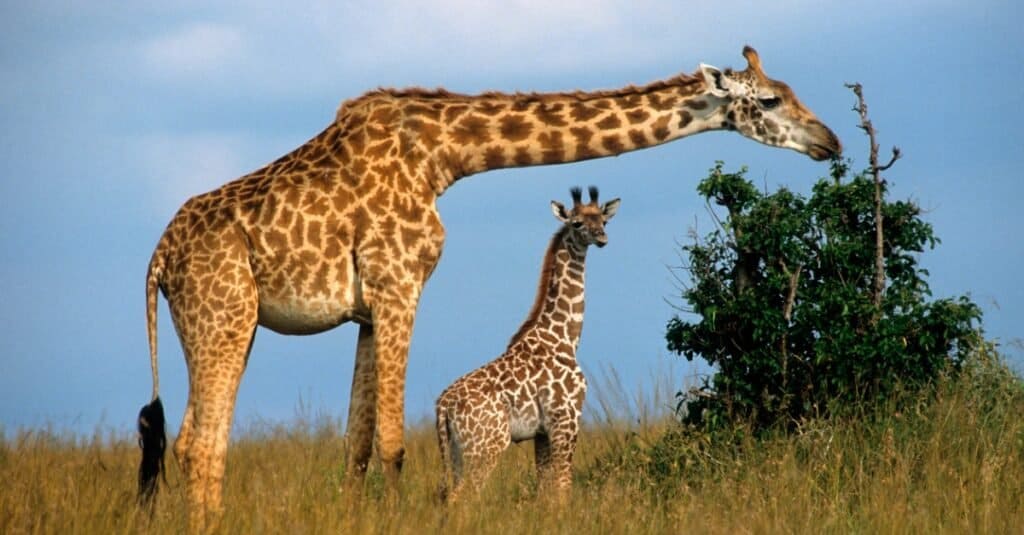
The giraffe is the tallest land animal in the world and can be found in Nigeria’s savannahs.
©iStock.com/Michel VIARD
Nigeria is home to a diverse range of wildlife, including some of the largest animals in Africa.
Here are some of the largest animals found in Nigeria:
- African elephant: The African elephant is the largest land animal in the world and can be found in various parts of Nigeria. These majestic creatures can weigh up to 6 tonnes and stand up to 4 meters tall at the shoulder.
- Hippopotamus: The hippopotamus is one of the largest mammals found in Africa and can be found in Nigeria’s rivers and lakes. These semi-aquatic creatures can weigh up to 3,200 kg and are known for their aggressive behavior.
- Nile crocodile: The Nile crocodile is the largest crocodile species in Africa and can be found in Nigeria’s waterways. These powerful predators can grow up to 6 meters in length and weigh over 1,000 kg.
- African buffalo: The African buffalo is a large and powerful bovine that can be found in Nigeria’s savannahs and forests. These animals can weigh up to 900 kg and are known for their aggressive behavior.
- Giraffe: The giraffe is the tallest land animal in the world and can be found in Nigeria’s savannahs. These magnificent creatures can reach heights of up to 5.5 meters.
Where to Find the Top Wild Animals
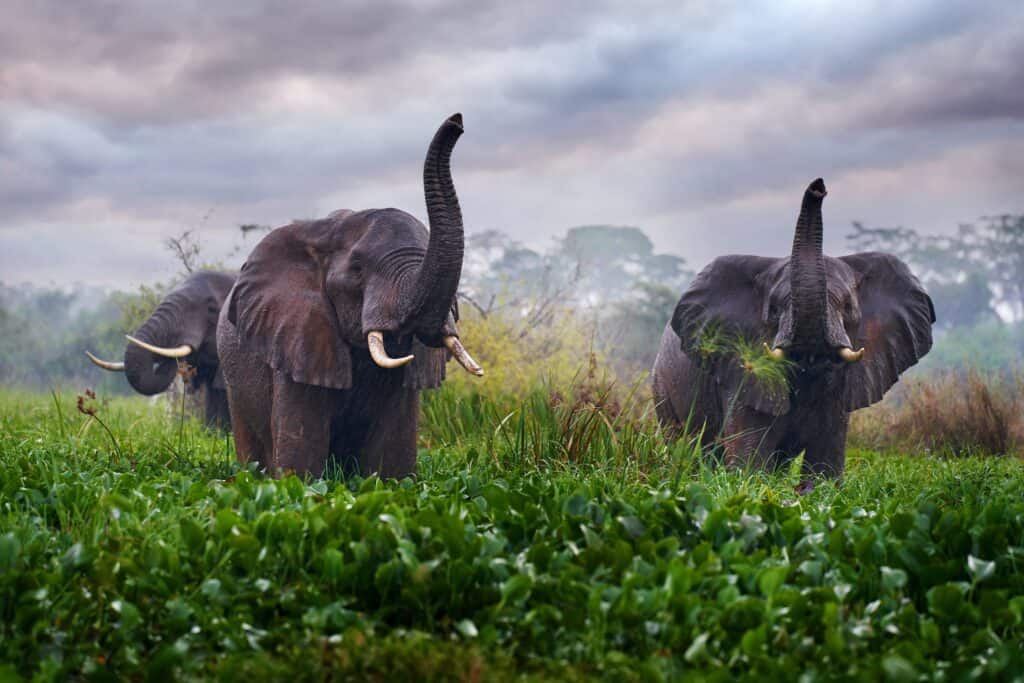
These elephants live at five different sites in Southern Nigeria, including the Omo Forests in Ogun State, the Okomu National Park, the Cross River National Park, Idanre Forests and Osse River Park, and Andoni Island.
©Ondrej Prosicky/Shutterstock.com
There are many types of animals in Nigeria. Therefore, you may want to spend some time exploring the different ecosystems to see the many unique animals and birds that exist in very few other places in the world. Some sightseeing areas include:
- Cross River gorillas– Head to Afi Mountain Wildlife Sanctuary, the Mbe Mountains, or the Okwangwo Division of Cross River National Park to see Cross River gorillas in their natural habitat.
- Forest elephants – These elephants live at five different sites in Southern Nigeria, including the Omo Forests in Ogun State, the Okomu National Park, the Cross River National Park, Idanre Forests and Osse River Park, and on Andoni Island.
- Savannah Elephants – See savannah elephants at Yankari National Park and the Yankari Game Reserve, but there are less than 500 remaining in the wild, so you might want to hurry.
- Nigeria-Cameroon chimpanzees – These are the most threatened and least distributed of all chimpanzees, and you can see these unique animals at Gashaka-Gumti National Park and Ngel Nyaki Forest Reserve.
- African lions – Hear the roar of African lions at Yankari and Kainji-lake national parks before they go extinct.
- Niger Delta red colobus monkeys – Only about 200 of these monkeys are left in the world. A conservatory opened in October 2020 at Apoi Creek Forest to protect the largest troop of Niger Delta red colobus monkeys from going extinct.
- Preuss’s red colobus monkeys – See these monkeys in Cross River National Park.
- Leopards – It can be challenging to see a leopard in Nigeria because they are rare and under threat, but cameras have spotted them in Kainji Lake National Park, Gashaka-Gumti National Park, and Yankari Game Reserve.
The Most Dangerous Animals in Nigeria Today
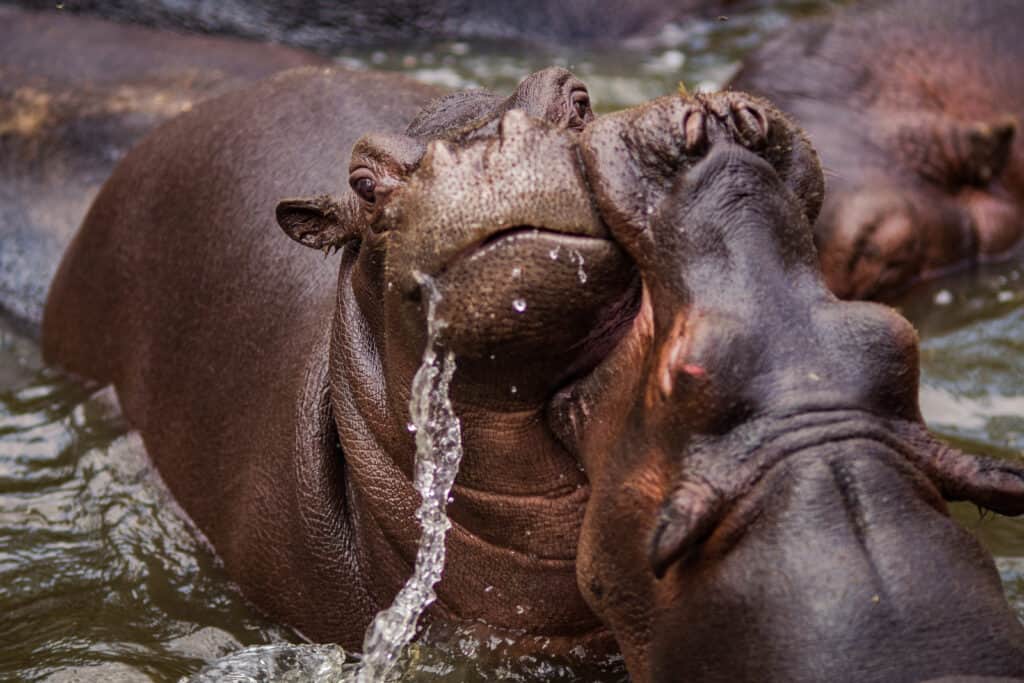
Hippos are mighty animals that are very territorial. Across Africa, about 3,000 people are killed by hippos annually.
©jos macouzet/Shutterstock.com
Most wild animals in Nigeria are perfectly safe. Those that are the most dangerous are often in remote areas where you may never encounter them as their numbers are often extremely threatened.
Therefore, the most dangerous animals in Nigeria today include:
- Puff adder – This unique snake is the deadliest across Africa, with approximately 32,000 people dying across the continent yearly from its bite.
- Mosquitoes – Across Africa, approximately 1 million people die annually from a mosquito bite, and another 70 million get sick with malaria or yellow fever.
- Dogs – Rabies is a huge problem in Nigeria.
- Hippopotamuses – These mighty animals are very territorial. Across Africa, about 3,000 people are killed by hippos annually.
Native Birds
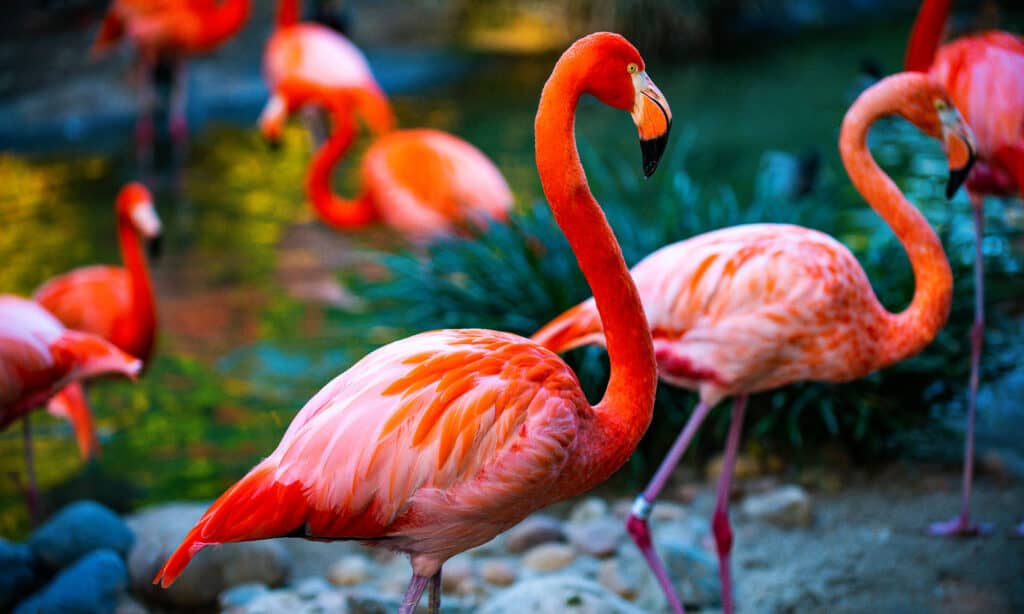
Flamingoes can sleep while standing.
©Volodymyr TVERDOKHLIB/Shutterstock.com
Around 1,000 bird species make their home in Nigeria. Four of these species are endemic to the country and 31 are under threat of population decline. Endemic species include Ibadan malimbe, Anambra waxbill, Rock firefinch, and Jos Plateau indigo bird. A great diversity of birds roam, ranging from ostriches to waterfowl to flamingos.
Supporting multitudes of beautiful and unique species across diverse environments, Nigeria is around 34th in the world for birdwatching, drawing in avian fanatics from all over the world. Listed are a few popular observation sites and what birds may be spotted:
- Amurum Forest – Migratory birds; Joe Plateau Indigos, Rock Fire Finches, White-billed Buffalo-weavers, Pied Kingfisher, Senegal Parrot, etc.
- IITA Forest Reserve & Lake – Most popular species to see is Ibadan Malimbe; Helmeted guineafowl, African Pied Hornbill, Collared Sunbird, Black-crowned Night-heron, etc.
- Yankari Game Reserve – African Yellow White-eye, Grey Hornbill, Striped Kingfisher, Speckled-front Weaver, etc.
- Afi Mountain Wildlife Sanctuary – African Green Pidgeon, Black Kite, Village Weaver, etc.
In addition to the aforementioned areas, countless wildlife reserves and natural areas can be found in Nigeria, all bearing refuge to various avian visitors and residents.
Native Fish
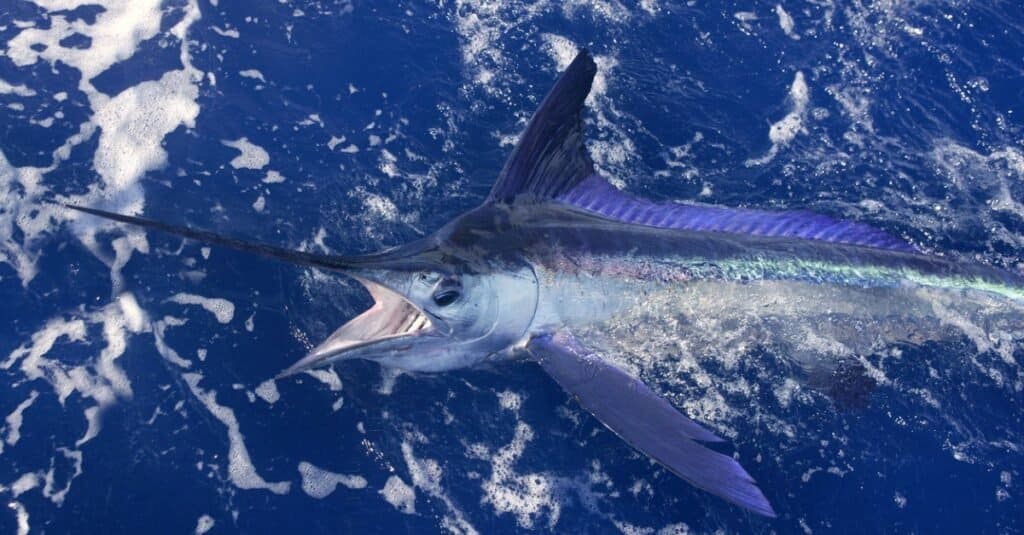
Marlins are among the fastest marine swimmers, reaching ~110 km/h (68 mph) in short bursts.
©iStock.com/LUNAMARINA
Nigerian people are dependent upon fish as their main source of protein, contributing to an extensive fishing industry. Along the coastline lie many fishing villages along with inland fishing in freshwater sources. Because of the necessity of fishing for the survival of local people, fishing is under the regulation of state and federal governments.
However, the country continues to lose an estimated $70 million each year to illegal fishing. Nigeria is the largest producer of catfish in the world, a fish popular in both commercial and local markets. Crayfish, sardines, tilapia, and salmon are also common species to find in fish farms in Nigeria.
Sport fishing is also popular in the country with charter trips available off the coast. Some popular species found in these waters are:
- Blue Marlin
- Yellowfin Tuna
- Wahoo
- Mahi Mahi
- Sailfish
When visiting any country it is important to follow its rules and regulations regarding hunting and fishing. Nigeria, in particular, depends upon profitable fishing which is crucial to their economy and survival.
Native Snakes
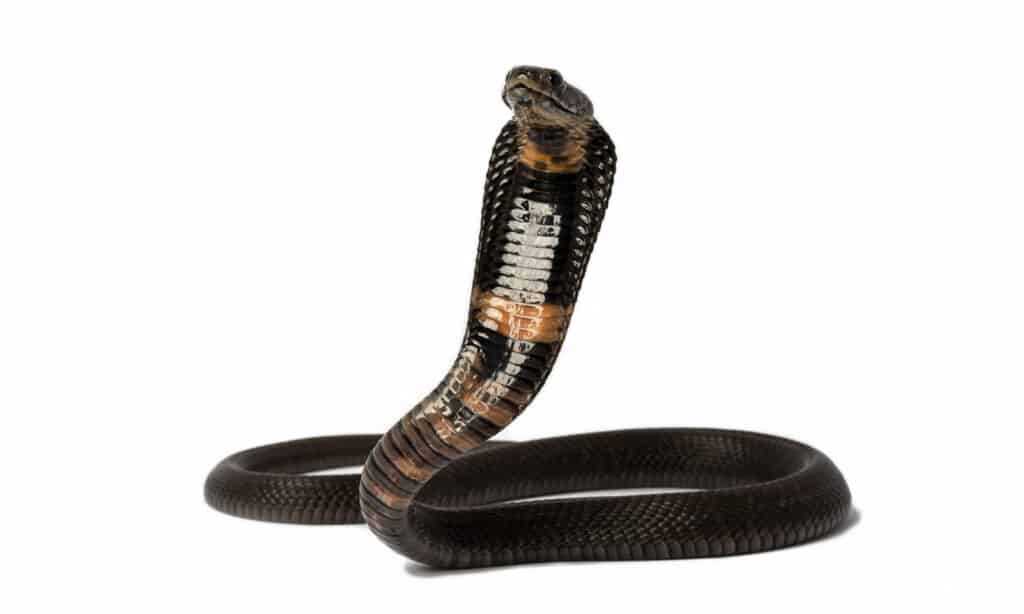
A Black-necked spitting cobra can be found in Nigeria.
©Scott Delony/Shutterstock.com
While a major hotspot for beautiful and intriguing wildlife, some dangers do lurk around the country of Nigeria, occasionally in the form of venomous snakes. However, several species of snakes in the country are non-venomous and keep their distance from humans.
Some venomous snake species found in Nigeria include:
- Puff Adder
- Gaboon Viper
- Black-necked Spitting Cobra
A few venomous species native to the country actually has a low chance of envenomation, such as stiletto snakes, mole vipers, and burrowing asps.
Non-venomous snakes include members of the python family, such as the African Rock Python. File snakes and thread snakes are non-venomous species endemic to Nigeria.
Endangered Animals
There are many endangered animals in Nigeria. Some are threatened everywhere in the world while others are more locally threatened. Across the country, important work is being done to protect animals. Some important endangered animals in Nigeria include:
- Northwestern African cheetah
- West African lion
- Dama gazelle
- Western gorilla
- Preuss’s monkey
- Pygmy hippopotamus
- Common chimpanzee
- West African wild dog
- Drill
Zoos in Nigeria
Along with many natural reserves and wildlife management areas, a handful of zoos exist in several Nigerian states. Following is a list of popular zoos and their attractions.
- Audu Bako Zoo, founded in 1971, is one of the oldest conservation sites in Nigeria. Species found here include lions, giraffes, hippopotamuses, zebras, and ostriches.
- The National Children’s Park and Zoo is a great zoo to take children to as its attractions include playgrounds, snack shops, and enclosures with easily identifiable animals. Animals found at this zoo range from camels to donkeys to cheetahs.
- Jos Wildlife Park is home to hippopotamus, a variety of monkeys, buffaloes, crocodiles, and hyenas. It was established in 1956 and spans 8 km (5 miles) and is now one of the oldest and most popular parks in the country.
Many of these zoos and parks are highly involved in wildlife conservation and protection, working towards combatting threats to natural species and their habitats.
Spectacular Fish Found in Nigeria
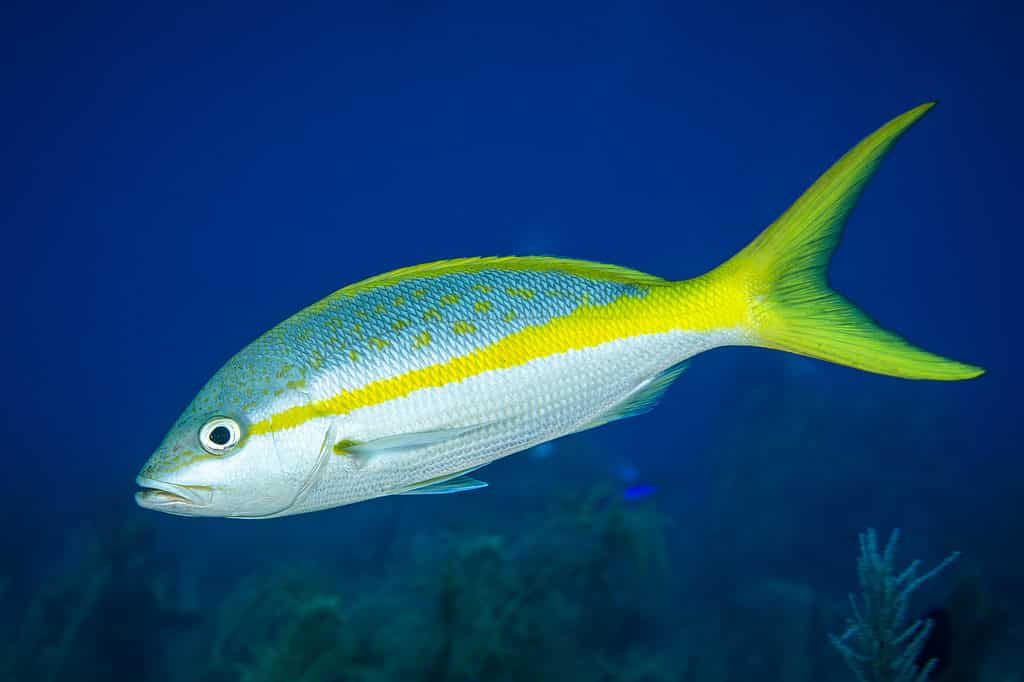
Yellowtail snapper on a coral reef at Little Cayman Island in the Caribbean.
©iStock.com/LaSalle-Photo
Nigeria has a diverse range of fish species, with over 250 freshwater and marine fish found in its rivers, lakes, and coastal waters.
Some of the common fish species found in Nigeria include:
- Tilapia: A popular freshwater fish that is farmed commercially in Nigeria and consumed widely for its mild, sweet flesh.
- Catfish: Another commonly farmed fish in Nigeria, known for its meaty texture and versatility in cooking.
- Mackerel: A common saltwater fish that is caught off the coast of Nigeria and consumed widely for its oily, flavorful flesh.
- Barracuda: A predatory saltwater fish that is highly prized for its tender white flesh and is often grilled or fried.
- Snapper: A group of saltwater fish species that are popular in Nigeria, including the red snapper, which is known for its firm texture and mild flavor.
Other fish species found in Nigeria include bream, croaker, carp, eel, grouper, and tuna. The fishing industry is an important source of livelihood for many Nigerians, both as a means of subsistence and as a commercial enterprise.
However, overfishing and pollution are significant threats to Nigeria’s fish populations, and efforts are being made to promote sustainable fishing practices and protect the country’s aquatic ecosystems.
Nigeria has a rich marine life with countless extraordinary fish species roaming its lakes, rivers, and coastal waters. In Nigeria’s waters, you’ll find the Atlantic sailfish (Istiophorus albicans), the Atlantic blue marlin (Makaira nigricans), the mahi-mahi (Coryphaena hippurus), and tons of other amazing fish,
Nigerian Animals
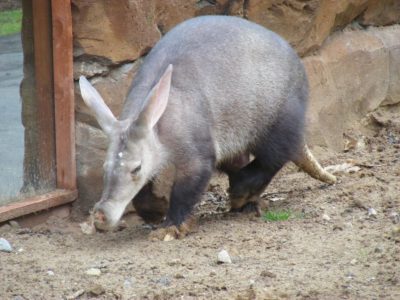
Aardvark
Can move 2ft of soil in just 15 seconds!
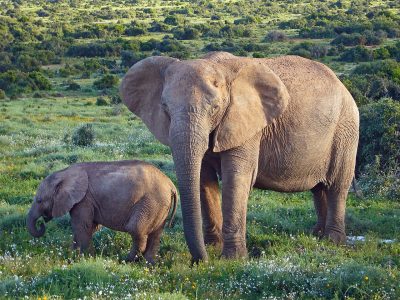
African Bush Elephant
Can drink up to 50 gallons a day
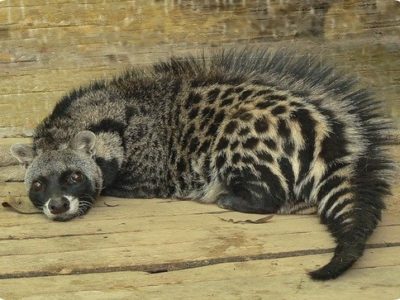
African Civet
Secretes up to 4g of musk every week!
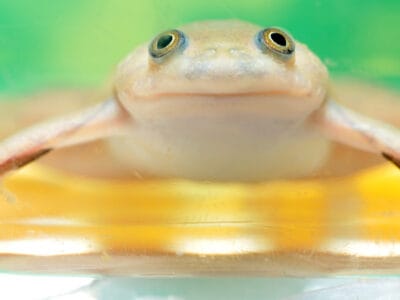
African Clawed Frog
African clawed frogs were used as pregnancy testers from the 1930s to the early 1960s.
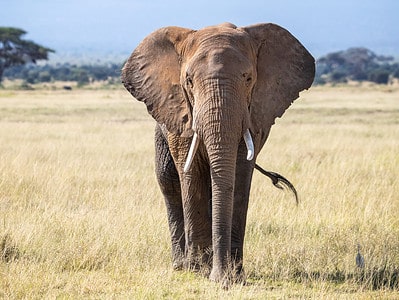
African Elephant
Both male and female African elephants have tusks. In Asian elephants, only the males have tusks.
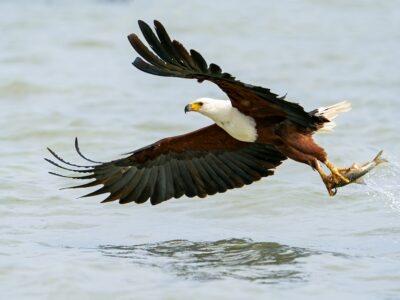
African Fish Eagle
African fish eagles belong to the genus of sea eagles
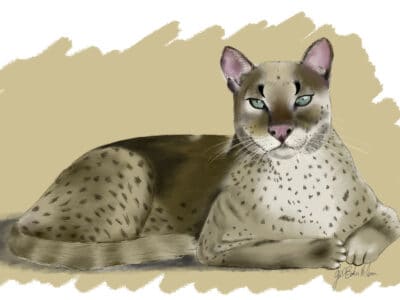
African Golden Cat
The first image of an African golden cat was captured in the wild in Gabon in 2002.
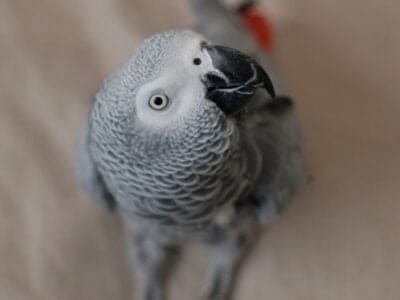
African Grey Parrot
When a grey parrot named Yosuke got lost, it was reunited with its owner after giving the owner's name and address.
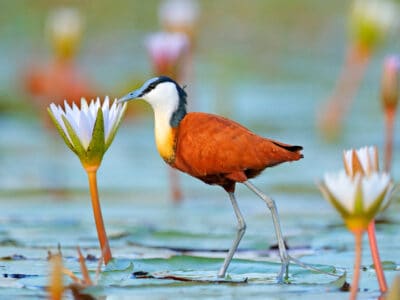
African Jacana
The males raise the young
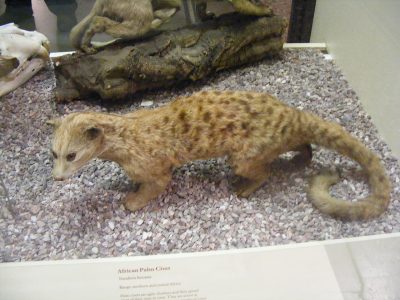
African Palm Civet
Solitary but gathers in groups!
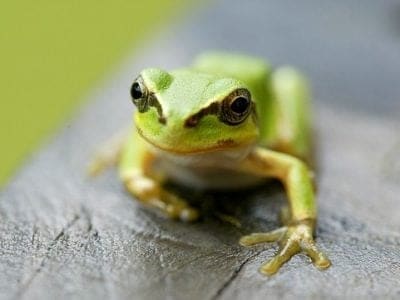
African Tree Toad
Found in tropical moist lowland forests!
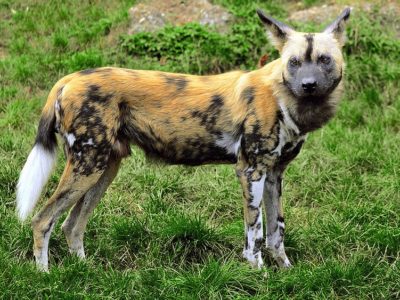
African Wild Dog
Also known as the painted dog!
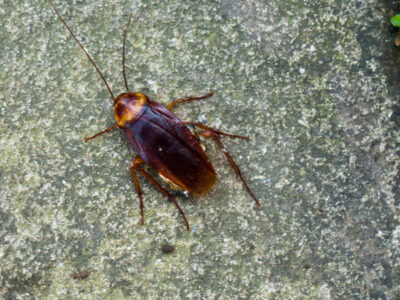
American Cockroach
Despite its name, actually originated from Africa and the Middle East
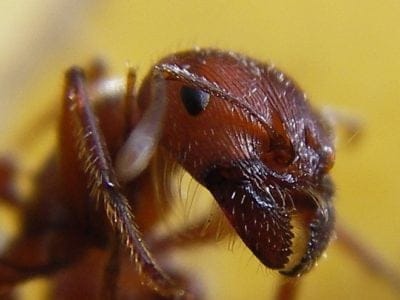
Ant
First evolved 100 million years ago!
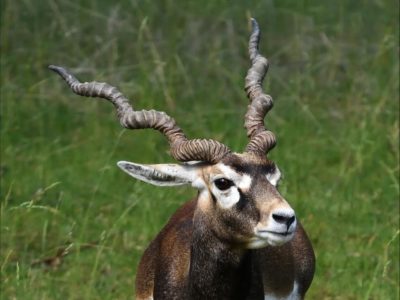
Antelope
Renew their horns every year!
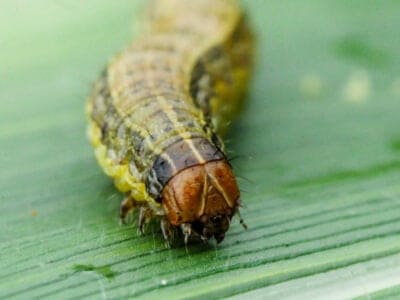
Armyworm
They are so named because they "march" in armies of worms from one crop to another in search of food
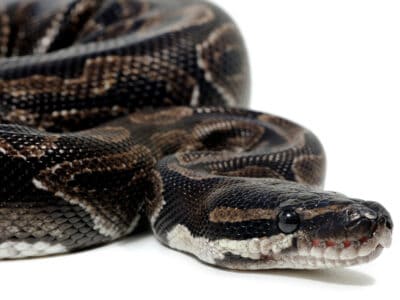
Axanthic Ball Python
Axanthic ball pythons lack yellow pigment in their skin!
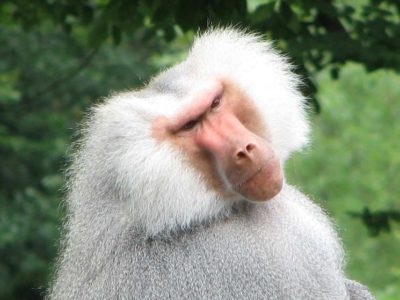
Baboon
Can travel more than four miles a day!
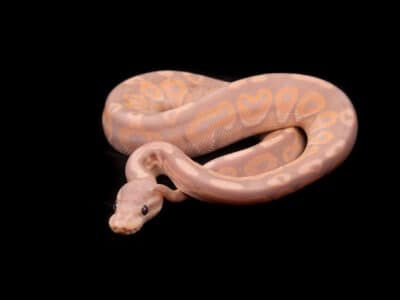
Banana Cinnamon Ball Python
Banana cinnamon ball pythons came from combining the banana and cinnamon genes.
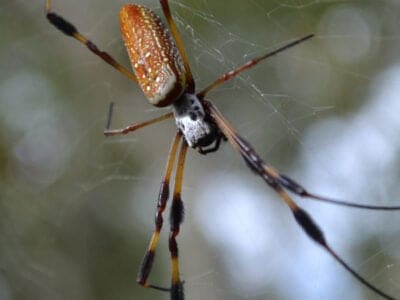
Banana Spider
People spin clothing and fishing nets out of these spiders’ silk.
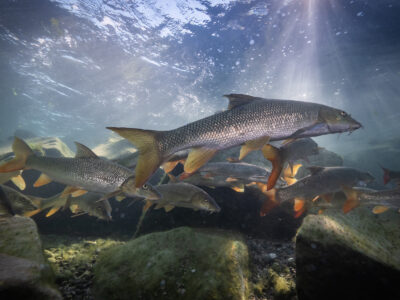
Barb
There are over 1768 known species!
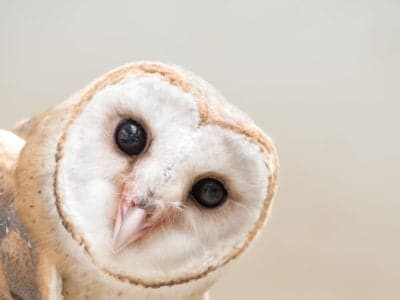
Barn Owl
Found everywhere around the world!
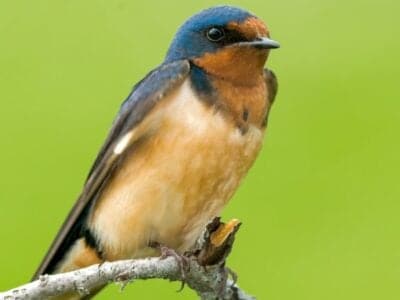
Barn Swallow
Older offspring help care for new hatchlings.
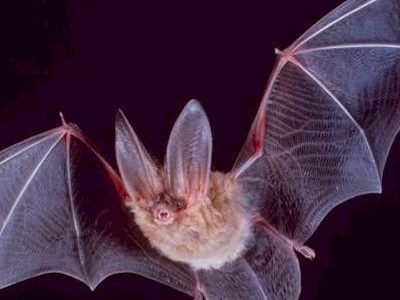
Bat
Detects prey using echolocation!
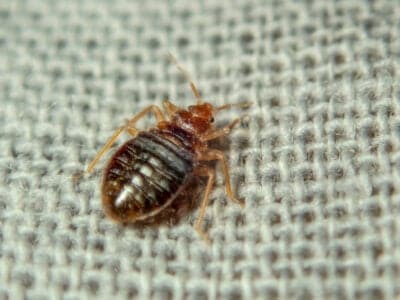
Bed Bugs
Bed bugs feed for 4-12 minutes.

Bee
Rock paintings of bees date back 15,000 years
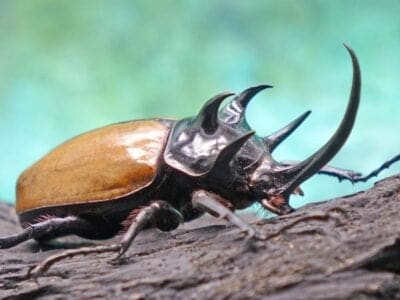
Beetle
There are more than 350,000 different species
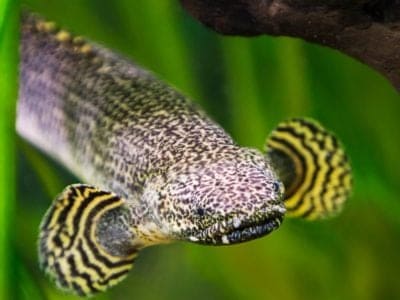
Bichir
The bichir species is more than 400 million years old
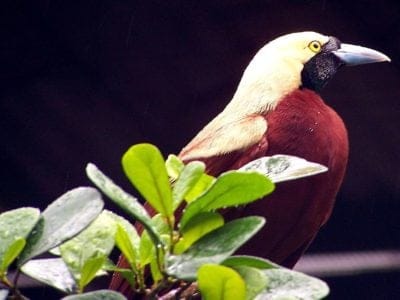
Bird
Not all birds are able to fly!
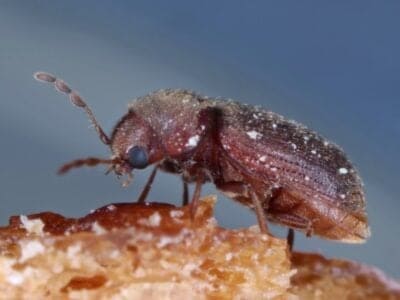
Biscuit Beetle
The biscuit beetle form a symbiotic relationship with yeast
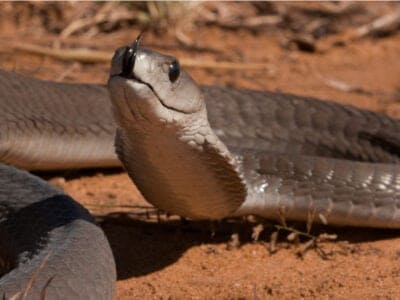
Black Mamba
Black mambas are the longest venomous snake in Africa, and second longest in the world.
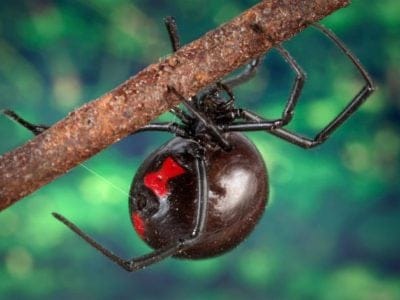
Black Widow Spider
They typically prey on insects!
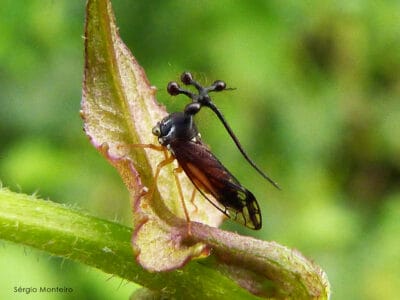
Brazilian Treehopper
“Mild-Mannered Minimonsters”
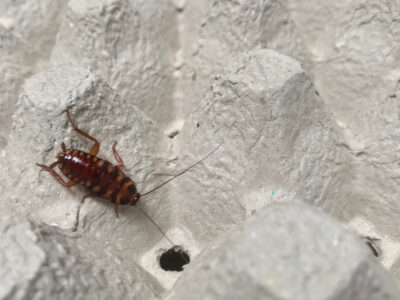
Brown-banded Cockroach
Females glue egg cases to furniture
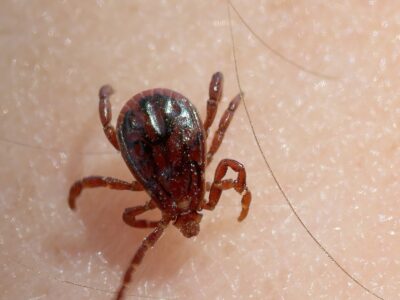
Brown Dog Tick
Can live its entire life indoors
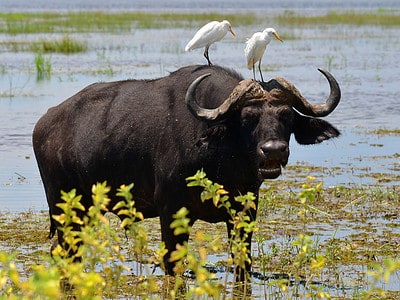
Buffalo
"They look like you owe them money."
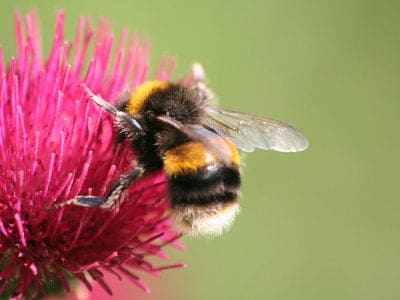
Bumblebee
The most common species of bee!
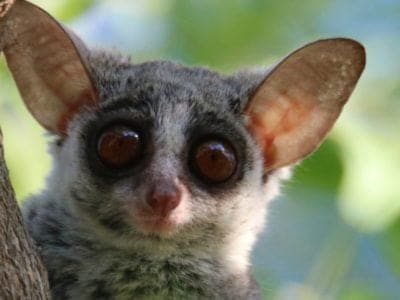
Bush Baby
In a series of leaps, this creature can cover almost 30 feet of distance in just a few seconds.
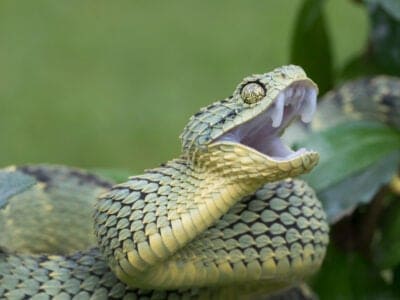
Bush Viper
Bush vipers are predators, sinking their fangs into prey while dangling from a tree limb
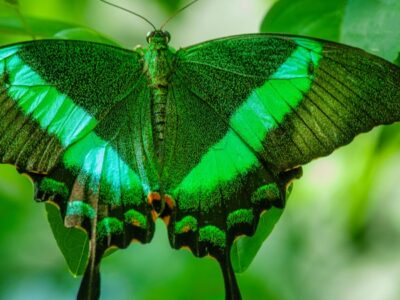
Butterfly
There are thought to be up 17,500 species!
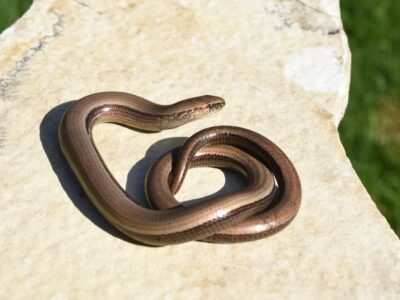
Caecilian
Some species' babies use their hooked or scraper-like teeth to peel off and eat their mother's skin
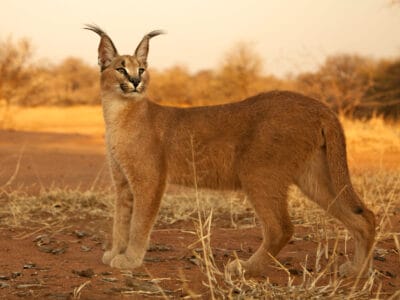
Caracal
Has 20 different muscles in it's ears!
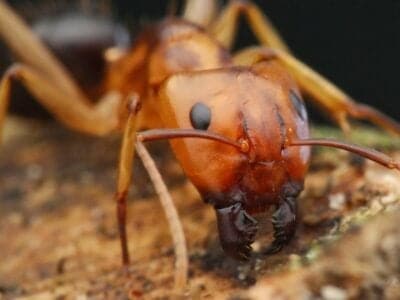
Carpenter Ant
Carpenter ants can lift up to seven times their own weight with their teeth!
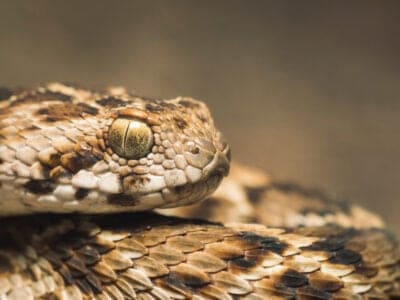
Carpet Viper
The Carpet Viper probably bites and kills more people than any other species of snake.

Cat
May have been domesticated up to 10,000 years ago.
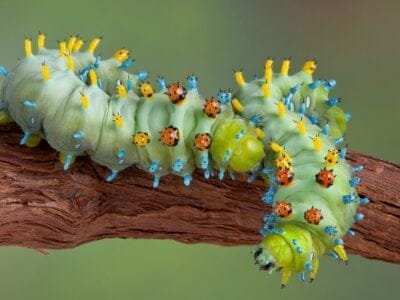
Caterpillar
The larvae of a moth or butterfly!
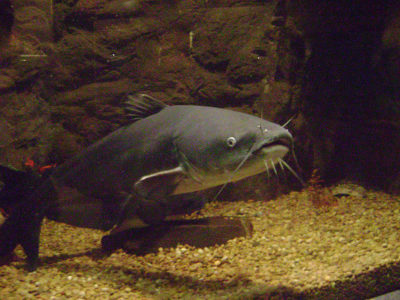
Catfish
There are nearly 3,000 different species!
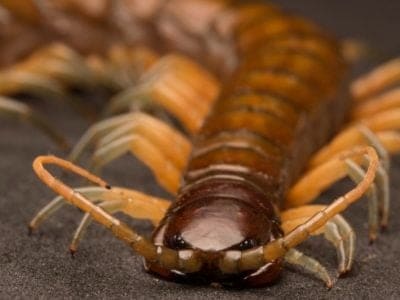
Centipede
There are about 3,000 documented species!
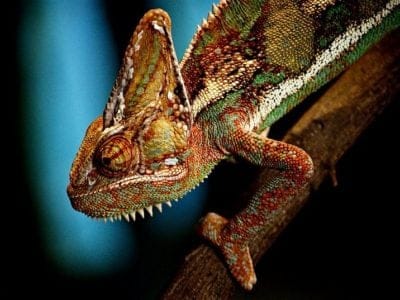
Chameleon
There are more than 160 different species!
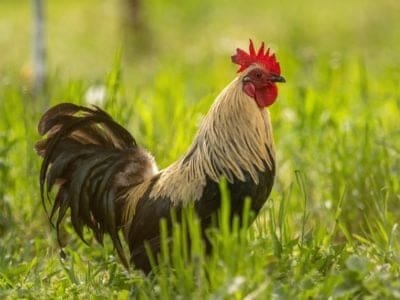
Chicken
First domesticated more than 10,000 years ago!
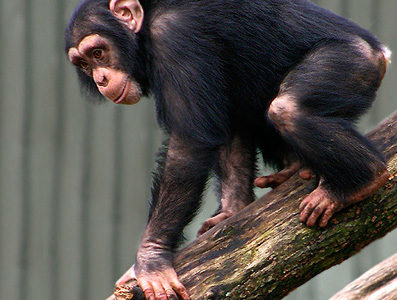
Chimpanzee
Has 32 teeth including fang-like canines!
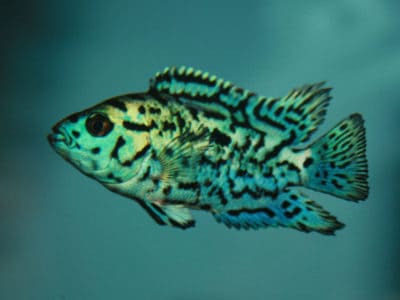
Cichlid
There are more than 2 000 known species!
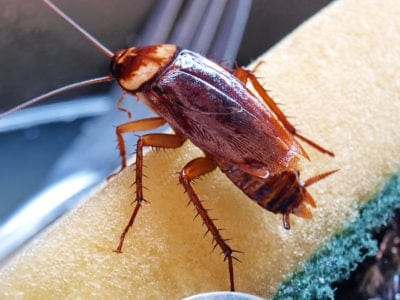
Cockroach
Dated to be around 300 million years old!
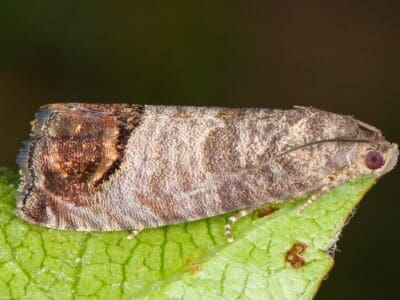
Codling Moth
Pupae are able to undergo diapause to survive poor fruit yield years and winter.
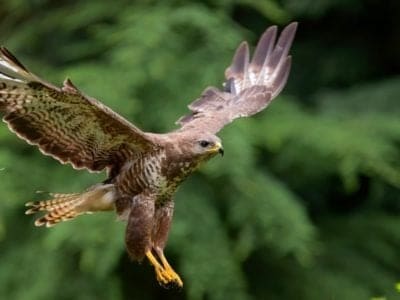
Common Buzzard
The most common raptor in the UK!
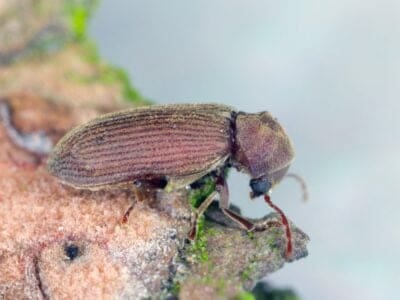
Common Furniture Beetle
The common furniture beetle feeds exclusively on wood
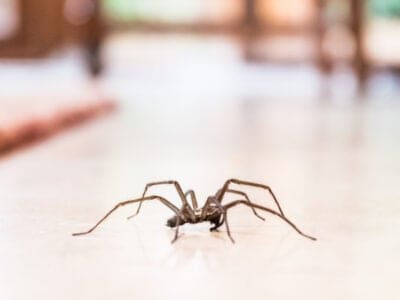
Common House Spider
House spiders have the ability to eat most insects in a home.
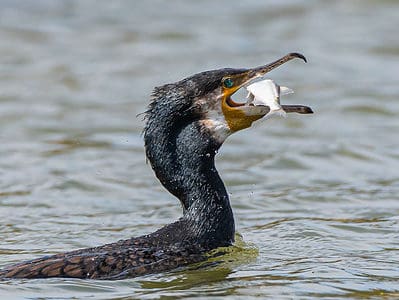
Cormorant
They can fly 35 mph and dive 150 feet below water.
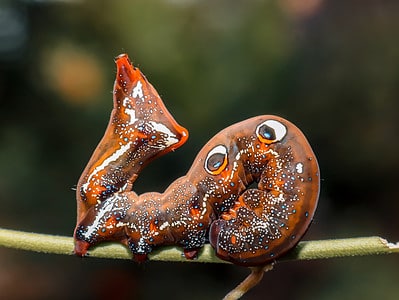
Cosmic Caterpillar
Cosmic caterpillars have spots on their back that look like eyes to scare off predators.
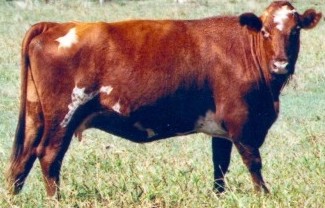
Cow
There are nearly 1.5 billion worldwide!
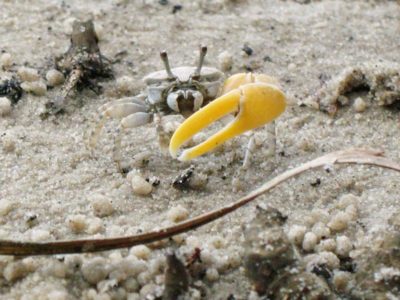
Crab
There are 93 different crab groups
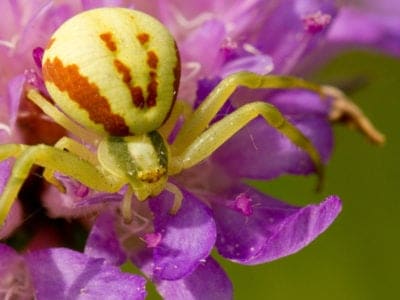
Crab Spider
Crab Spiders can mimic ants or bird droppings
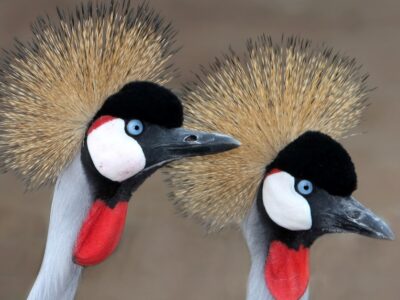
Crane
Many are critically endangered species!
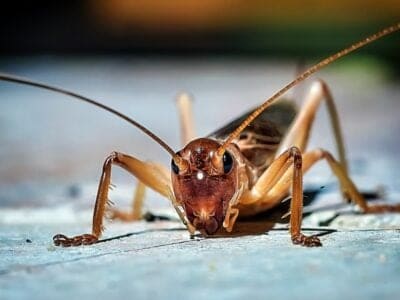
Cricket
Male crickets can produce sounds by rubbing their wings together
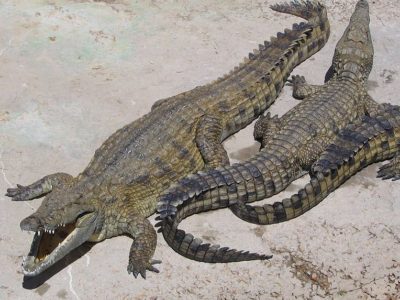
Crocodile
Have changed little in 200 million years!
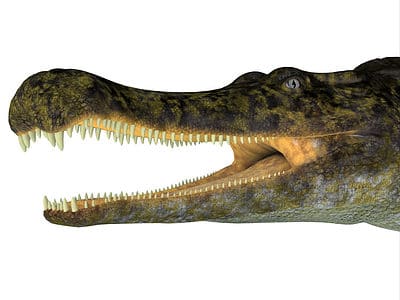
Crocodylomorph
Crocodylomorphs include extinct ancient species as well as 26 living species today.
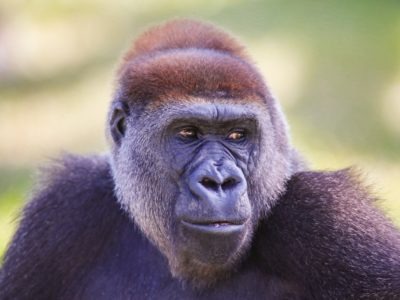
Cross River Gorilla
Less than 300 remaining!
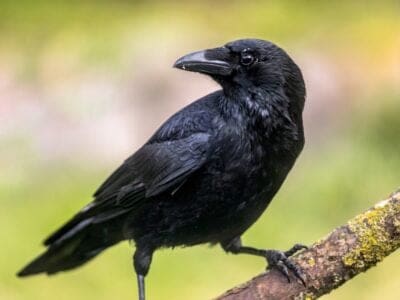
Crow
A group of these birds is called a Murder.
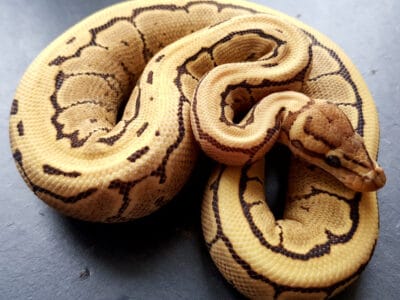
Desert Ghost Ball Python
Desert ghost ball pythons are even more beautiful when they're bred with another type like enchi ball pythons.
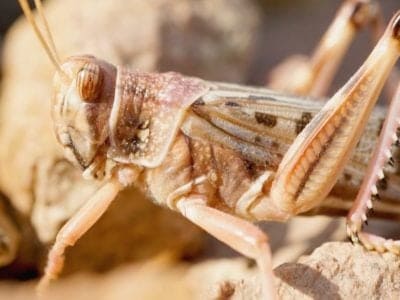
Desert Locust
Solitary locusts are grey while gregarious locusts are yellow with stripes.

Dog
First domesticated in South-East Asia!
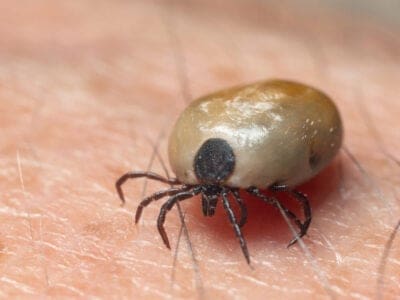
Dog Tick
Dog ticks feed on dogs and other mammals
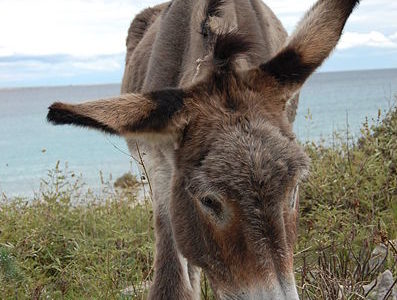
Donkey
First domesticated 5,000 years ago!
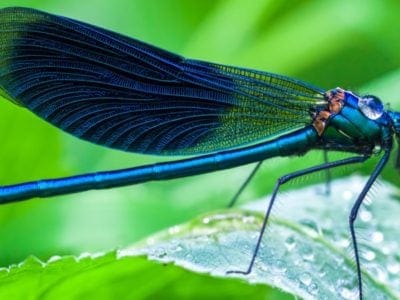
Dragonfly
It's larvae are carnivorous!
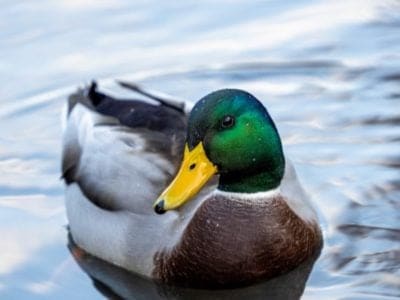
Duck
Rows of tiny plates line their teeth!
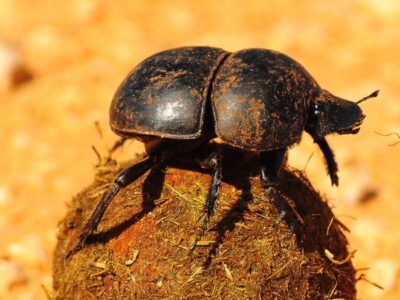
Dung Beetle
The dung beetle can push objects many times its own weight
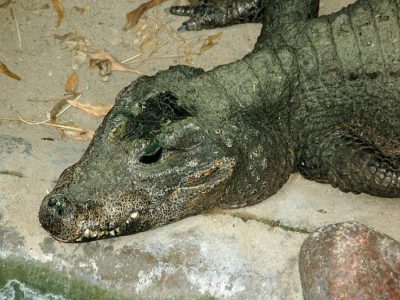
Dwarf Crocodile
Digs burrows in river banks to rest!

Earthworm
They are hermaphrodites, which means they have male and female organs
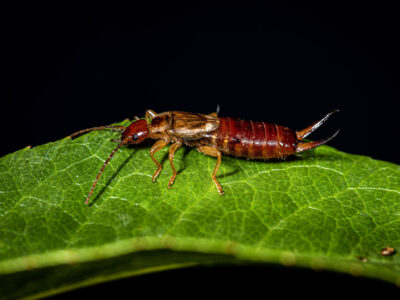
Earwig
There are nearly 2,000 different species!

Eel
Eels can be a mere few inches long to 13 feet!
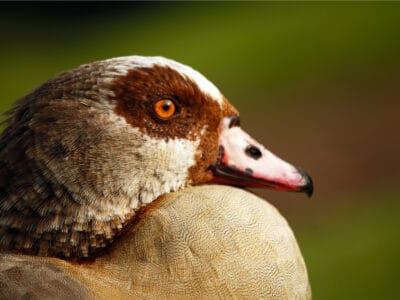
Egyptian Goose
A duck species that resembles a goose when flying
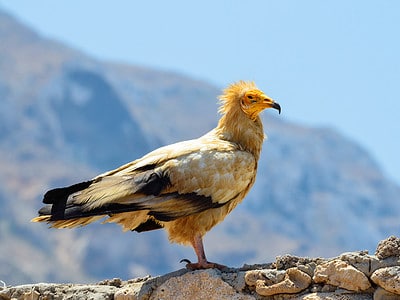
Egyptian Vulture
They steal large ostrich eggs and use rocks and pebbles to crack the shells.
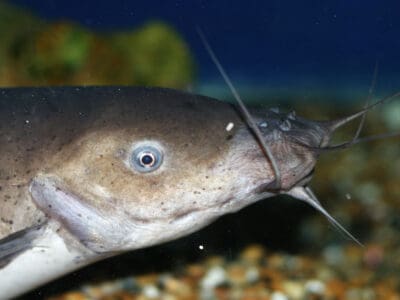
Electric Catfish
The electric catfish can discharge an electric shock up to 450 volts
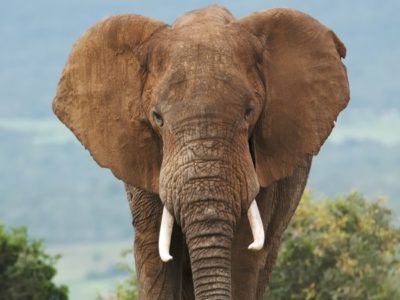
Elephant
Spends around 22 hours a day eating!
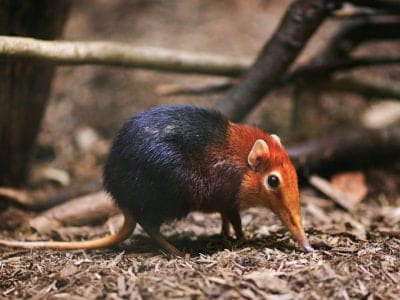
Elephant Shrew
Found exclusively on the African continent!
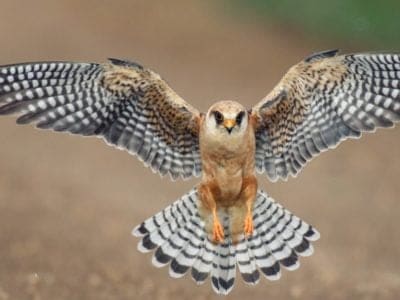
Falcon
The fastest creatures on the planet!
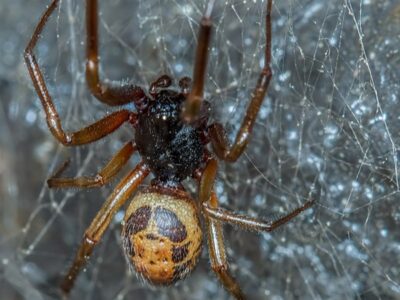
False Widow Spider
False spiders actually prey on black widow spiders and other hazardous spiders
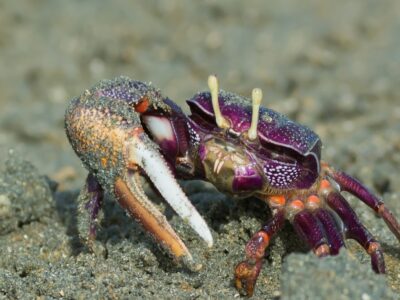
Fiddler Crab
The fiddler crab gets its name from the motion the males make with their over-sized claw during the mating ritual.
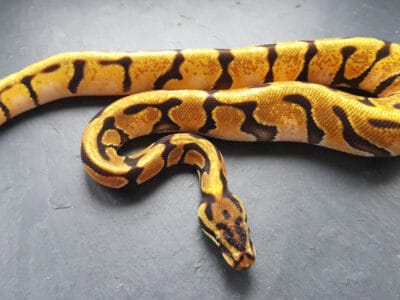
Fire Ball Python
The fire ball python morph is known for its rich golden and reddish-brown coloration.
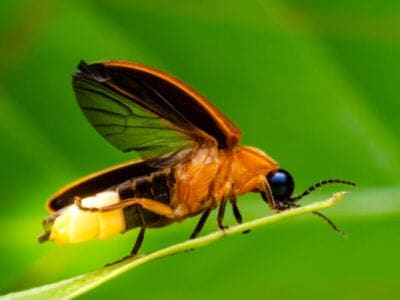
Firefly
The firefly produces some of the most efficient light in the world
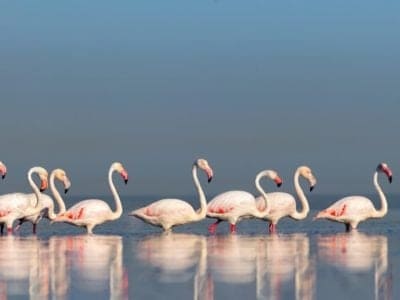
Flamingo
Sleeps on just one leg!
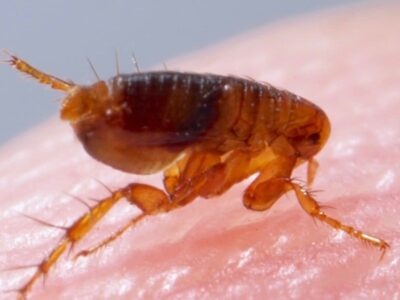
Flea
Adult fleas can jump up to 7 inches in the air
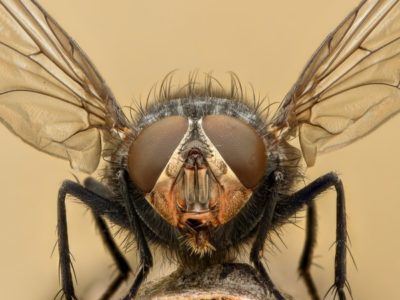
Fly
There are more than 240,000 different species!
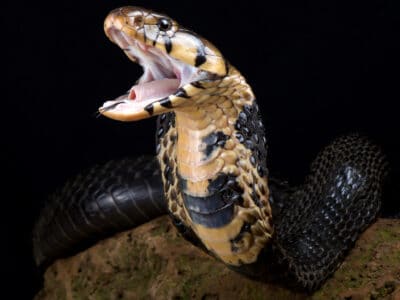
Forest Cobra
There are three different color morphs, which entirely depend on the region that they live in.
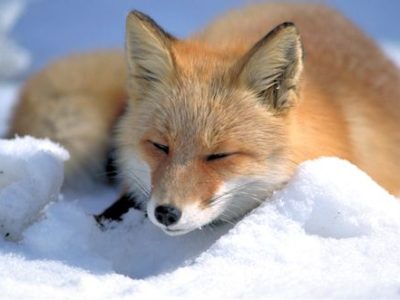
Fox
Only 12 species are considered "true foxes"
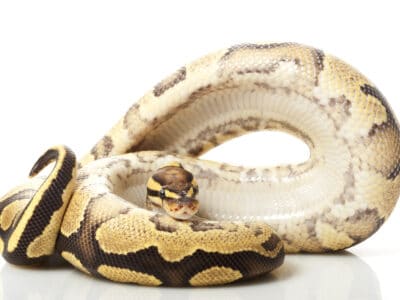
Freeway Ball Python
Freeway ball pythons come from breeding yellow belly and asphalt ball pythons.
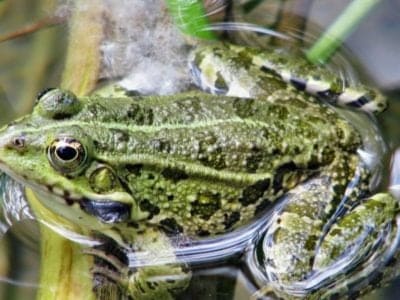
Frog
There are around 7,000 different species!
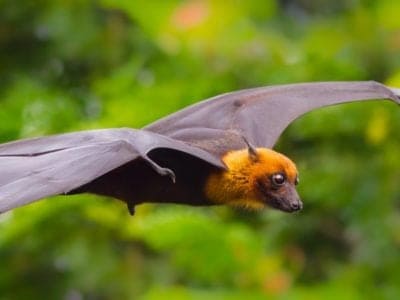
Fruit Bat
Among the largest bats in the world

Fruit Fly
Fruit flies are among the most common research animals in the world
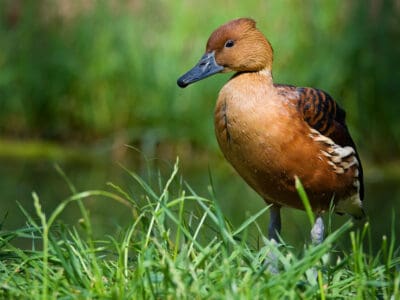
Fulvous Whistling Duck
They build a ramp from their nest, which leads to a nearby water source
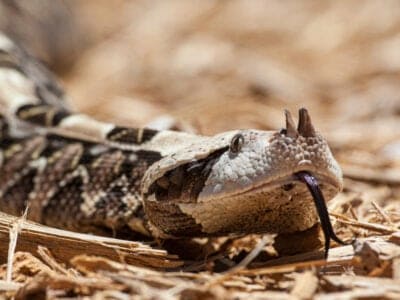
Gaboon Viper
Gaboon vipers are the largest vipers in Africa.
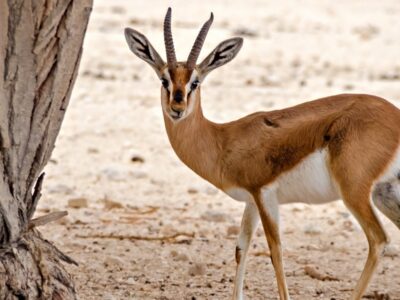
Gazelle
Named for the Arabic word for love poems
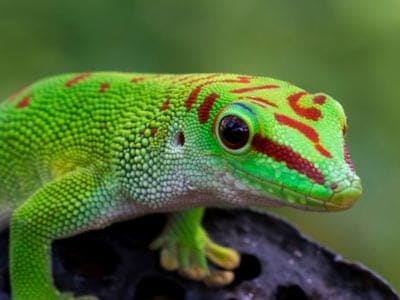
Gecko
There are thought to be over 2,000 species!
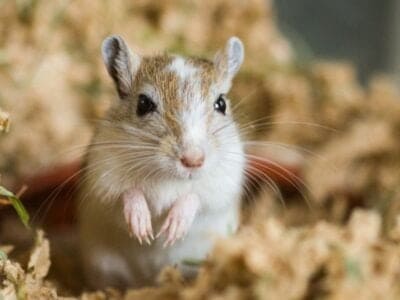
Gerbil
Originally known as the Desert Rat!
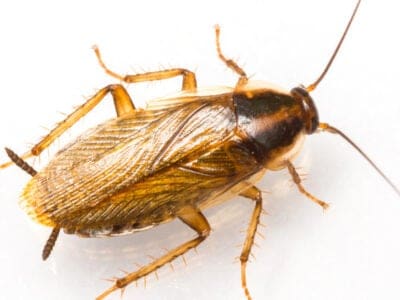
German Cockroach
The most common type of urban roach
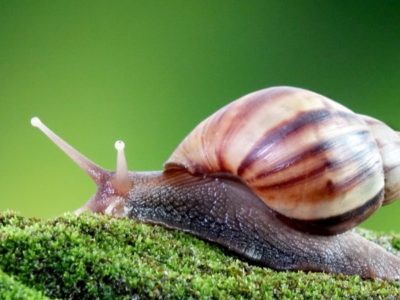
Giant African Land Snail
The biggest snail species on land!
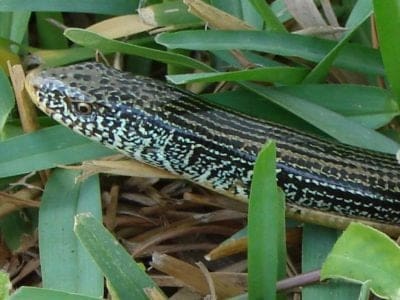
Glass Lizard
Can grow up to 4ft long!
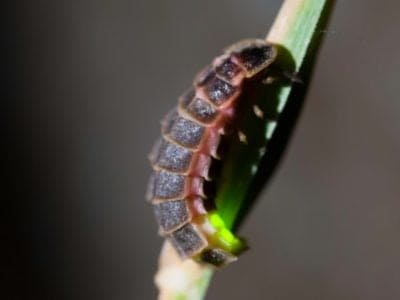
Glowworm
Found inhabiting dense woodland and caves!
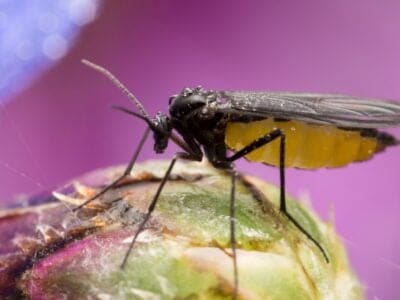
Gnat
Males form large mating swarms at dusk
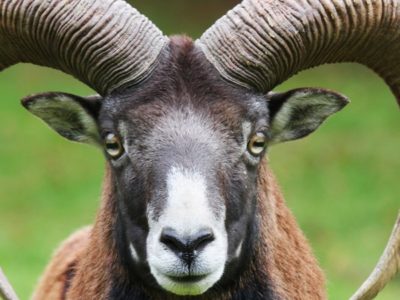
Goat
Most closely related to the Sheep!
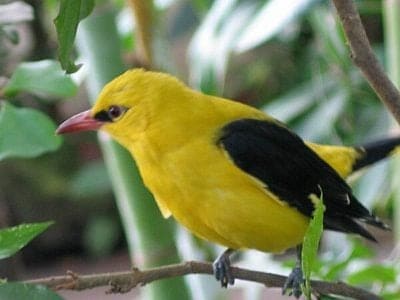
Golden Oriole
Migrates between Europe and Asia!
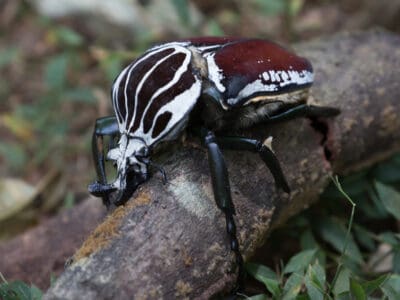
Goliath Beetle
Goliath beetles are the largest beetles in the world, and they can carry objects several times their weight.

Gorilla
The biggest of the world's primates!
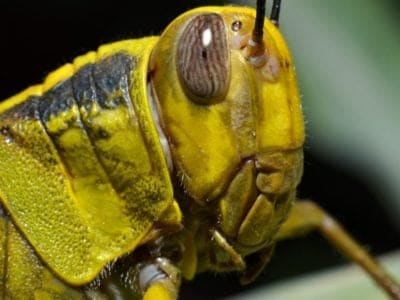
Grasshopper
There are 11,000 known species!
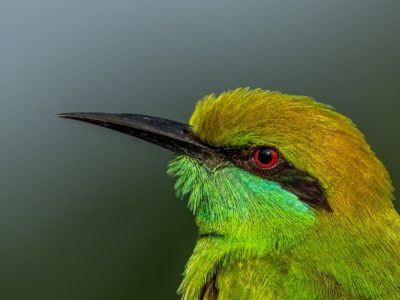
Green Bee-Eater
Mainly eats honeybees!
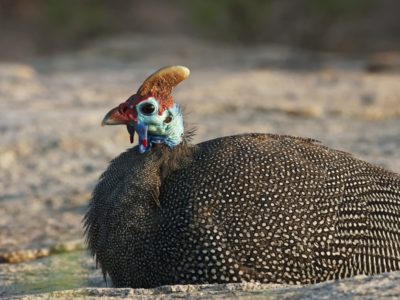
Guinea Fowl
Found in a vairety of African habitats!
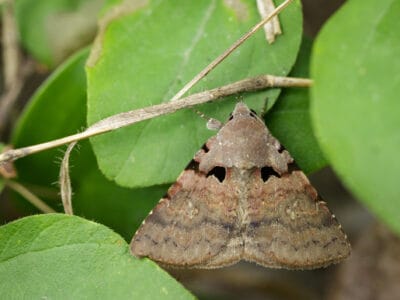
Gypsy Moth
One of the most invasive species in the world
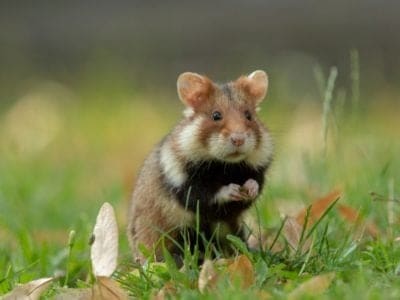
Hamster
Able to run as quickly backwards as forwards!
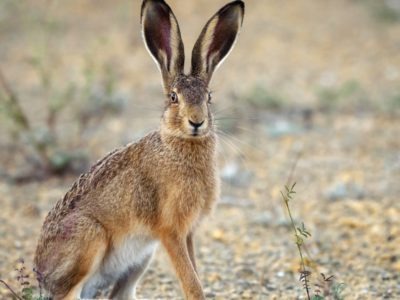
Hare
Can reach speeds of over 50 mph!
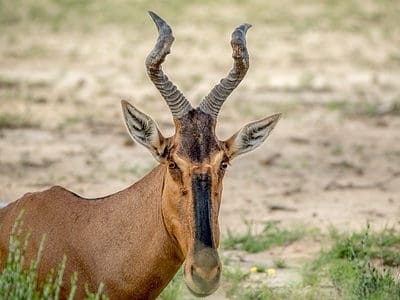
Hartebeest
Unlike other animals that move towards the water source, hartebeests move to more arid locations after rainfall.
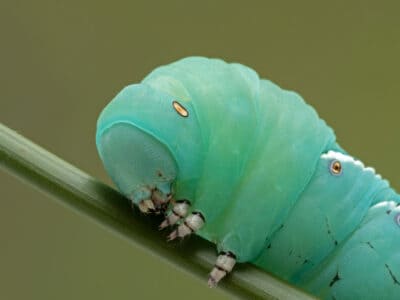
Hawk Moth Caterpillar
Many hawk moth caterpillars eat toxins from plants, but don’t sequester them the way milkweed butterflies do. Most toxins are excreted.
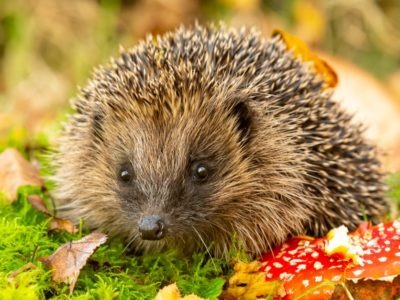
Hedgehog
Thought to be one of the oldest mammals on Earth!
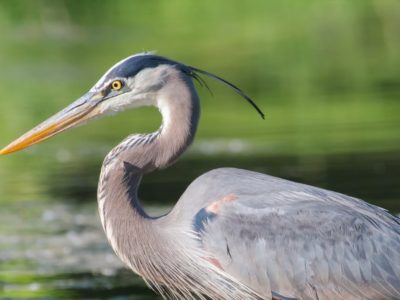
Heron
Inhabits wetlands around the world!
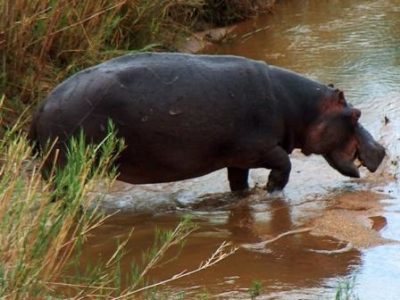
Hippopotamus
Has pink anti-bacterial sweat!
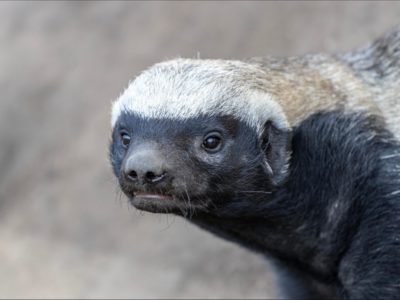
Honey Badger
One of earth's bravest creatures!
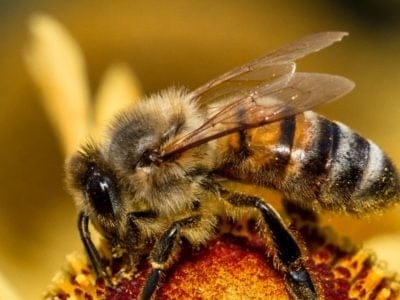
Honey Bee
There are only 8 recognized species!
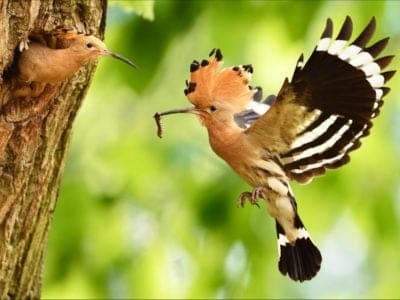
Hoopoe
Stunning bird with a stinky way to deter predators!

Horse
Has evolved over 50 million years!
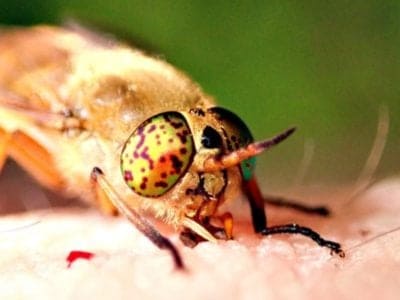
Horsefly
Horseflies have been seen performing Immelmann turns, much like fighter jets.
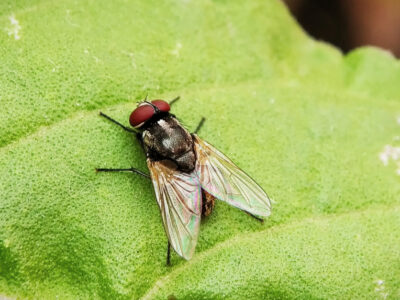
Housefly
The fly has no teeth

Human
Thought to have orignated 200,000 years ago!
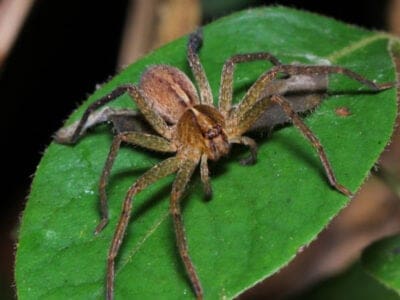
Huntsman Spider
Some huntsman spiders have an interesting way of moving around. Some cartwheel while others do handsprings or backflips.
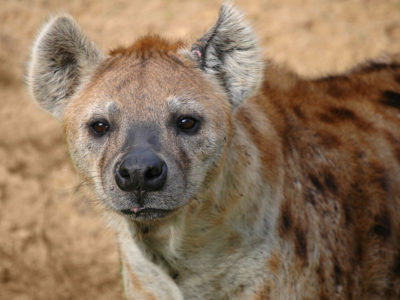
Hyena
There are four different species!
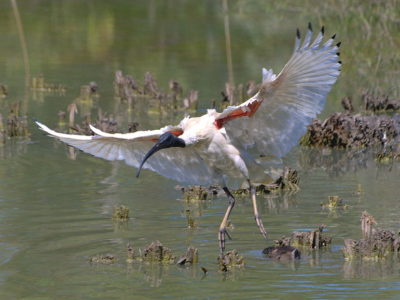
Ibis
Found in swamps, marshes and wetlands!
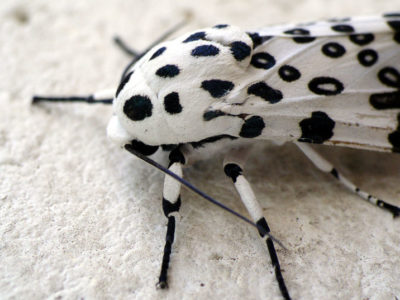
Insects
There are an estimated 30 million species!
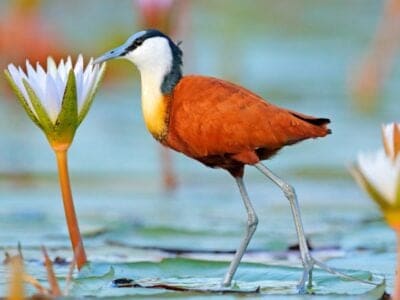
Jacana
The jacana has the ability to swim underwater
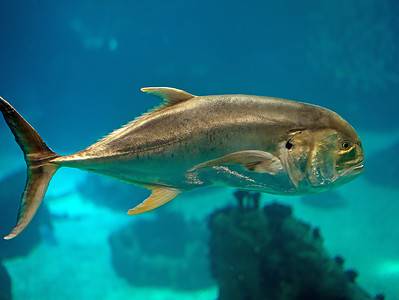
Jack Crevalle
One of the biggest species in the Caranx genus
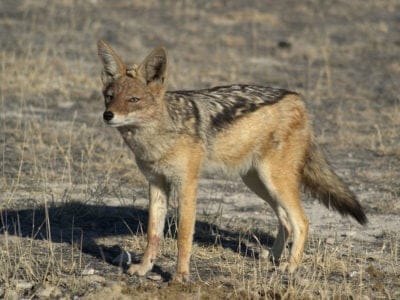
Jackal
Can maintain speeds of 16 km/h!
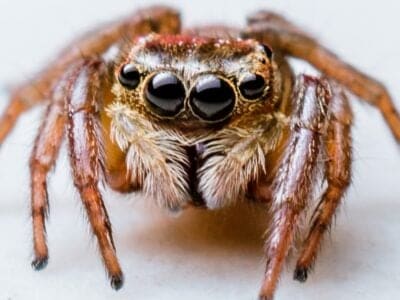
Jumping Spider
Some can jump 50 times the length of their bodies
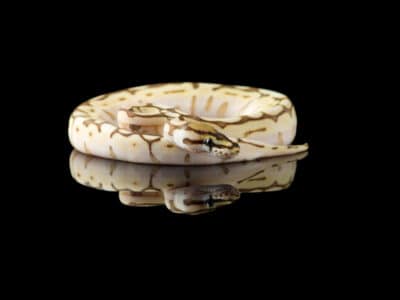
Killer Clown Ball Python
Killer clown ball pythons can cost several thousand dollars.
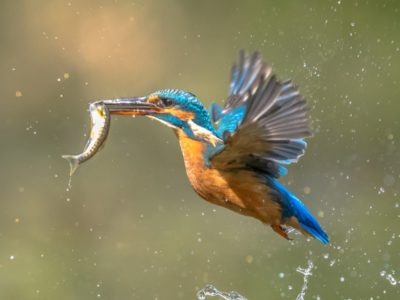
Kingfisher
Inhabits wetlands and woodlands worldwide!
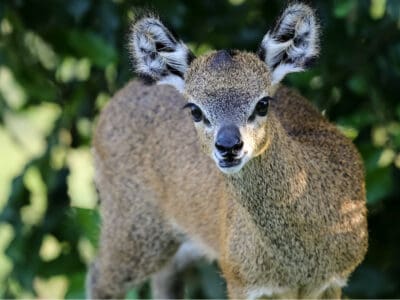
Klipspringer
Klipspringers can jump as high as 10-12ft!
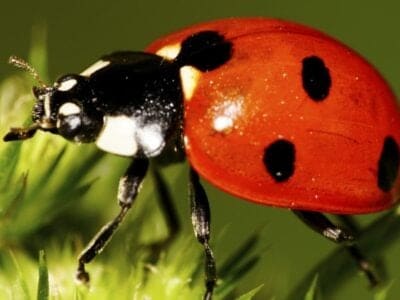
Ladybug
There are more than 5,000 species worldwide!
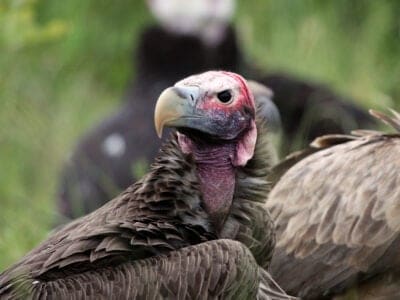
Lappet-faced Vulture
Lappet-faced vultures are tidy and wash their heads in a body of water after they’ve eaten
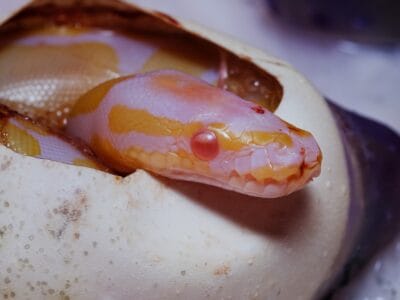
Lavender Albino Ball Python
The first two lavender albino ball pythons were wild-hatched and imported from Africa.
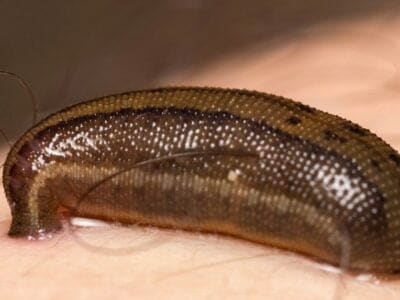
Leech
Has 10 pairs of eyes!
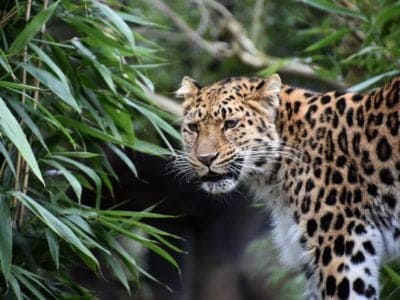
Leopard
Spends much of the time high in the trees!

Liger
The offspring of a lion and tiger parents!
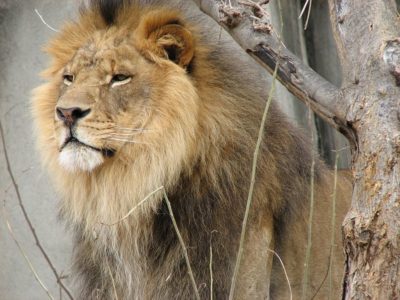
Lion
Lives in small groups called prides!
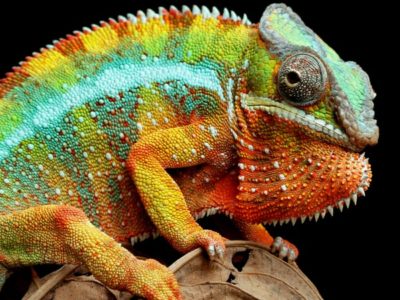
Lizard
There are around 5,000 different species!
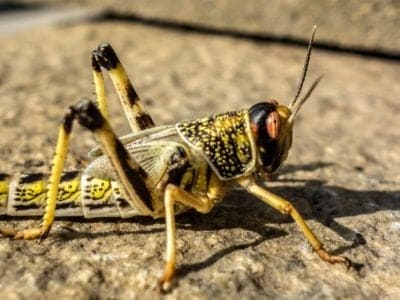
Locust
Each locust can eat its weight in plants each day.
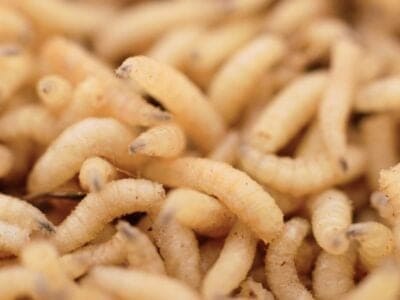
Maggot
Will only live in wet areas
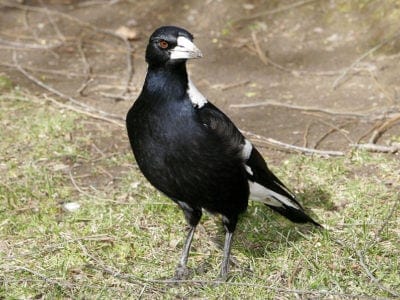
Magpie
They are found across Europe, Asia and Africa!
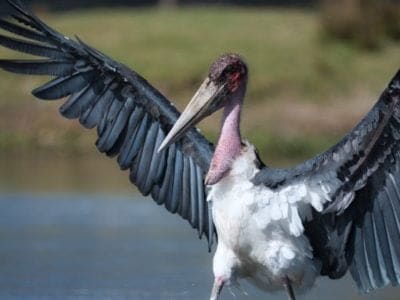
Marabou Stork
The marabou stork does not have a voice box.
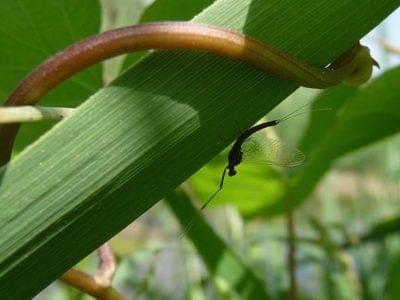
Mayfly
There are 2,500 known species worldwide!

Mealybug
They have a symbiotic relationship with ants.
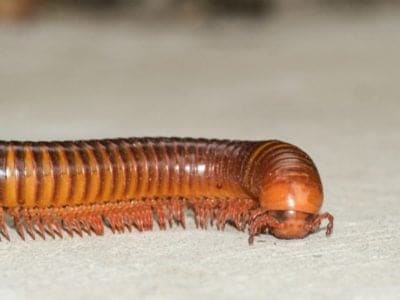
Millipede
Some species have a poisonous bite!
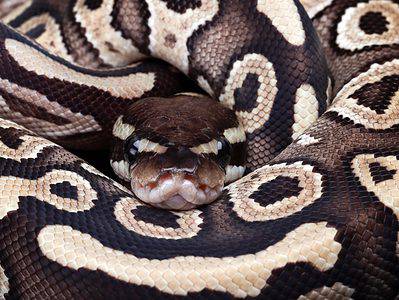
Mojave Ball Python
Instead of the typically banded or ‘alien head’ patterning of most ball python morphs, the Mojave morph’s patterning is characterized by lots of large, circular splotches with small, dark brown dots in their centers.
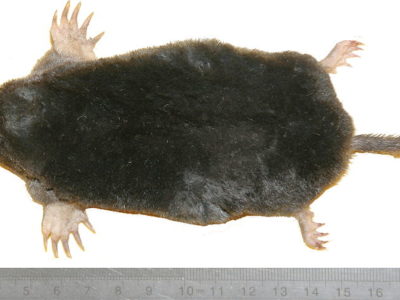
Mole
Primarily hunts and feeds on Earthworms!
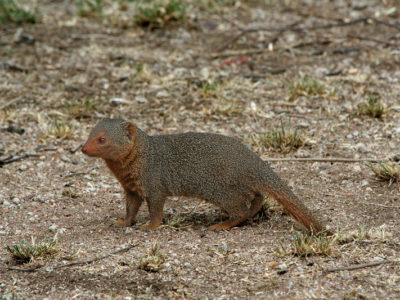
Mongoose
Range in size from just 1 to 3 foot!

Mongrel
Has characteristics of two or more breeds!
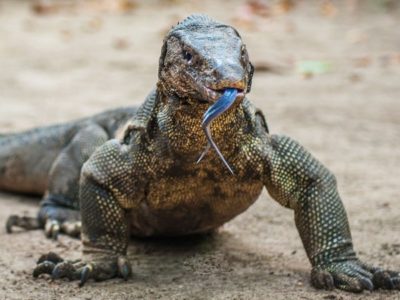
Monitor Lizard
Some species are thought to carry a weak venom!
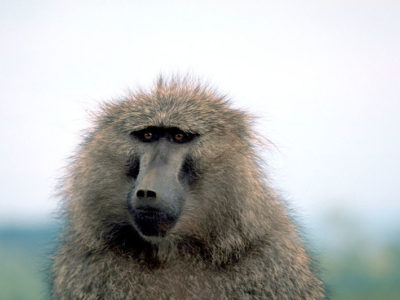
Monkey
There are around 260 known species!
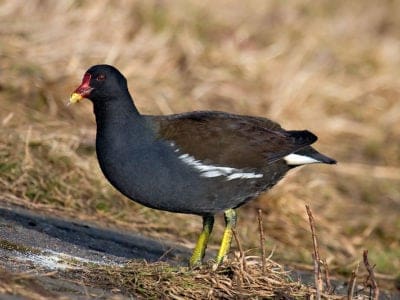
Moorhen
Feeds on aquatic insects and water-spiders!
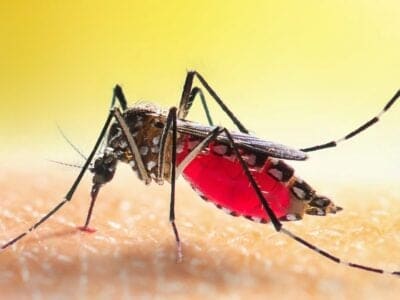
Mosquito
Only the female mosquito actually sucks blood
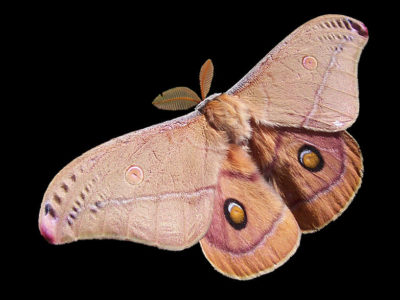
Moth
There are 250,000 different species!
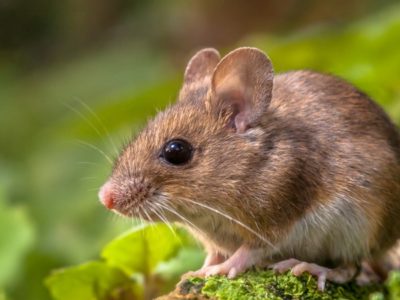
Mouse
Found on every continent on Earth!
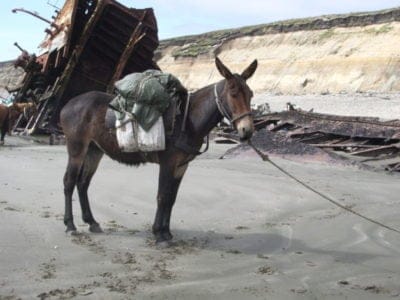
Mule
The offspring of a horse and donkey parents!
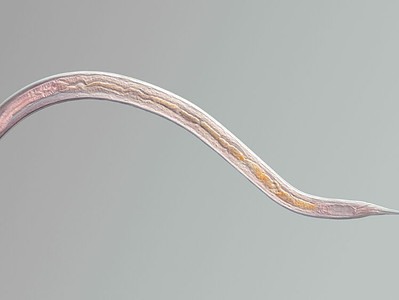
Nematode
Nematodes range in size from 1/10 of an inch to 28 feet long
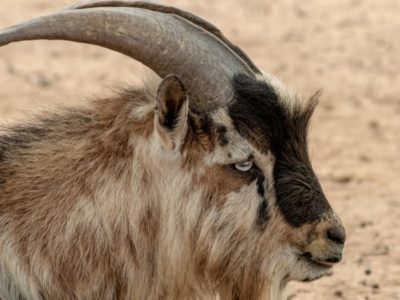
Nigerian Goat
Produces a lot of milk for its small size
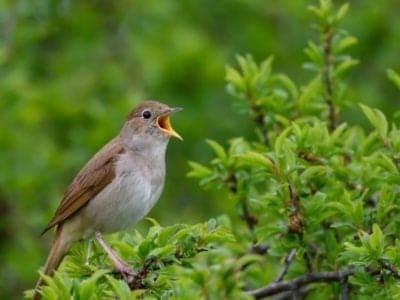
Nightingale
Named more than 1,000 years ago!
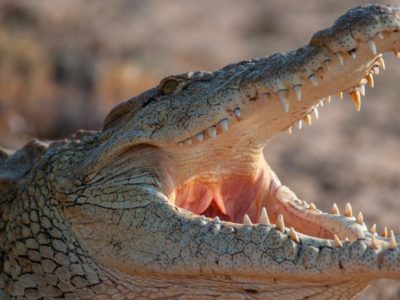
Nile Crocodile
Unlike other reptiles, the male Nile crocodile will stay with a female to guard their nest of eggs.
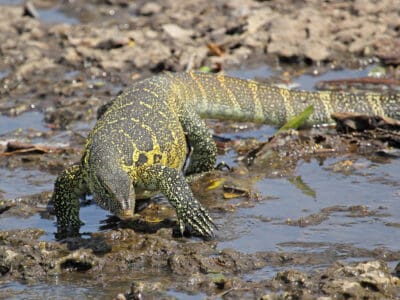
Nile Monitor
The Nile monitor is the world's fourth-largest lizard!
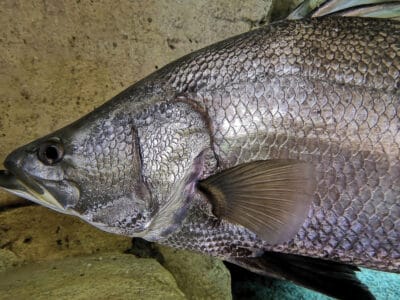
Nile Perch
Nile perch will sometimes eat those within its own species
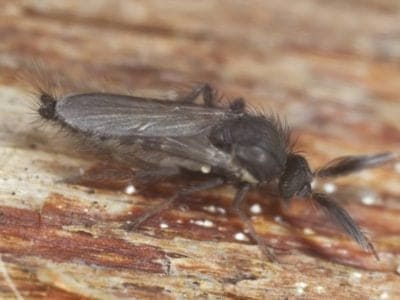
No See Ums
There are more than 5,000 species.
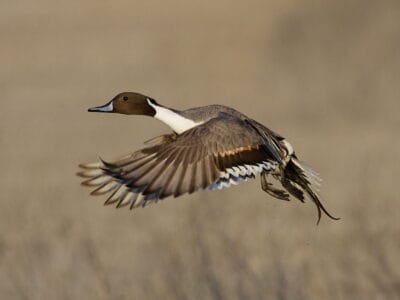
Northern Pintail
Northern pintails migrate at night with speeds reaching 48 miles per hour!
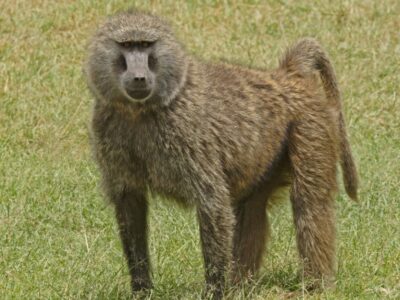
Olive Baboon
Olive baboons will sometimes form strong friendships with each other

Orange Dream Ball Python
The "Orange Dream" name came from the idea that the morph would make its first breeder a million dollars.
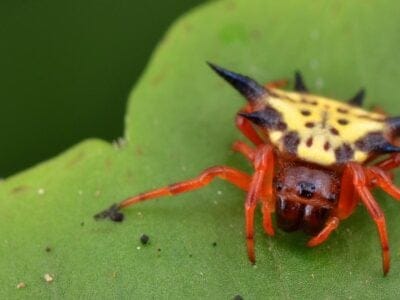
Orb Weaver
Females are about four times the size of males
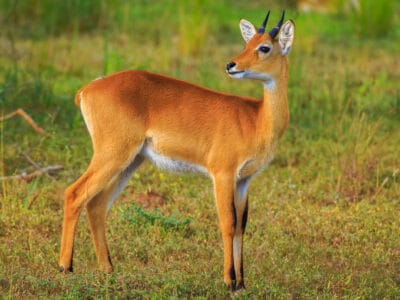
Oribi
Males oribis spend most of their time patrolling the borders of their territories; they can do this about 16 times an hour! However, 27% of their day is spent grazing.
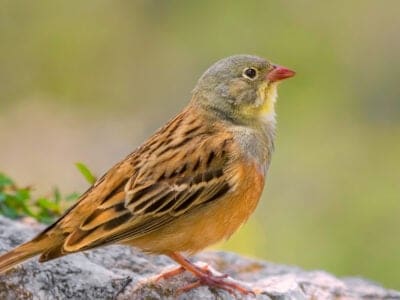
Ortolan Bunting
The tradition of hiding your face with a napkin or towel while eating this bird was begun by a priest who was a friend of the great French gastronome Jean Anthelme Brillat-Savarin.
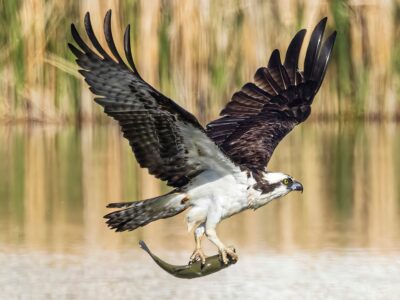
Osprey
They reuse nesting sites for 70 years!

Otter
There are 13 different species worldwide
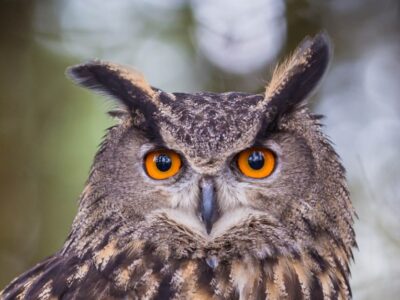
Owl
The owl can rotate its head some 270 degrees
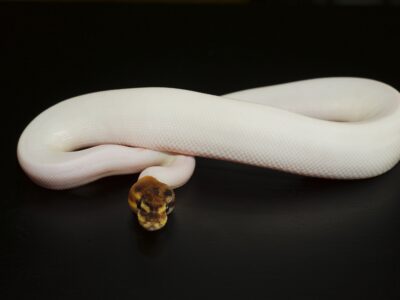
Panda Pied Ball Python
The panda pied ball python morph is a combination of the piebald and black pastel traits.
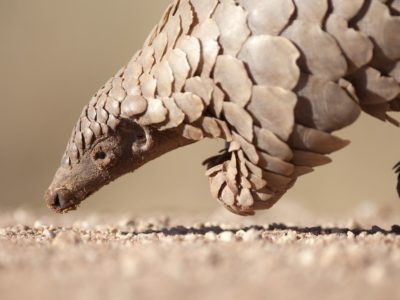
Pangolin
Bad eyesight, but great sense of smell
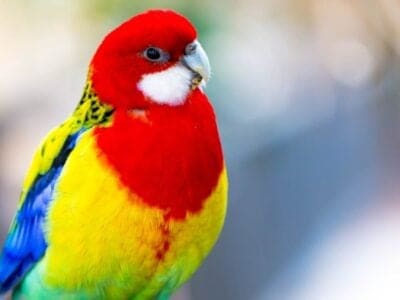
Parakeet
Monk parakeets are the only parakeets that actually build nests. They’re also the only parakeets to nest in great colonies.
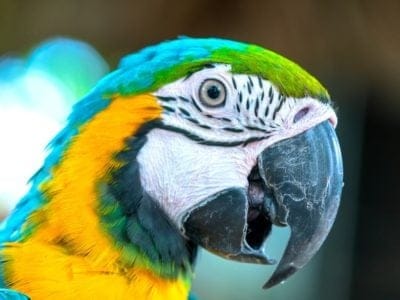
Parrot
Can live for up to 100 years!
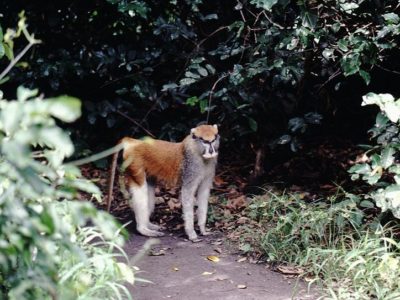
Patas Monkey
The fastest species of primate in the world!
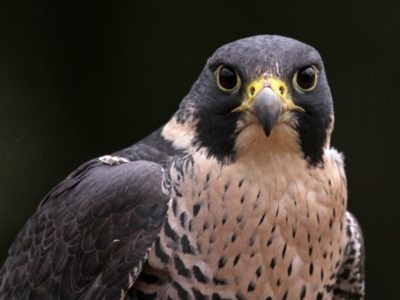
Peregrine Falcon
Fastest animal on Earth
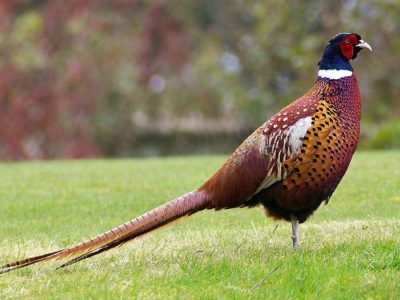
Pheasant
Females lay between 8 and 12 eggs per clutch!
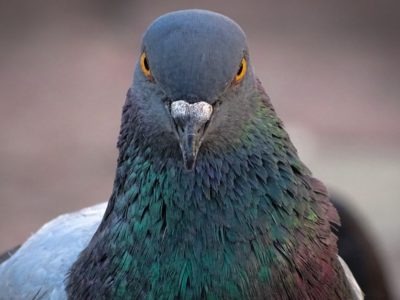
Pigeon
They can find their way back to their nests from up to 1300 miles away.
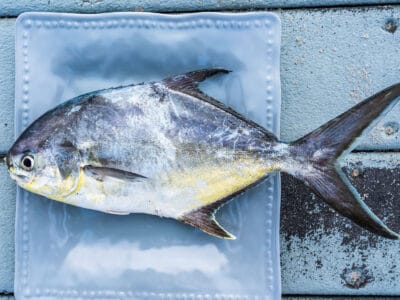
Pompano Fish
They are bottom-feeders
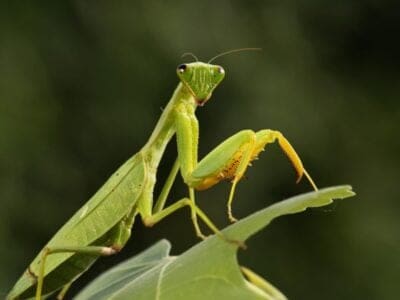
Praying Mantis
The mantis can turn its head 180 degrees.
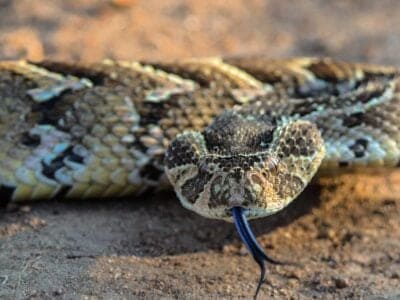
Puff Adder
This large snake is so-named because it will puff up its body to appear bigger than it is when directly threatened by a predator or person.
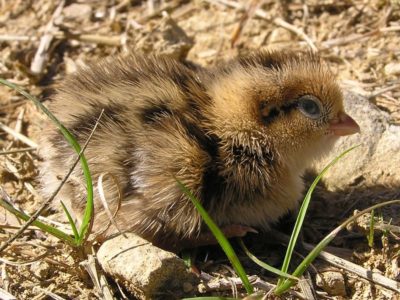
Quail
Inhabits woodland and forest areas worldwide!

Rabbit
There are more than 300 different species!
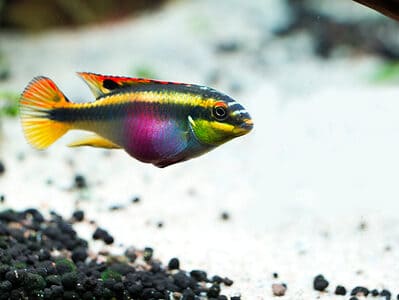
Rainbow Kribs (Kribensis)
Rainbow Kribs sometimes nip the fins of other fish, especially ones with long, flowing tails, which is too tempting for them not to bite.
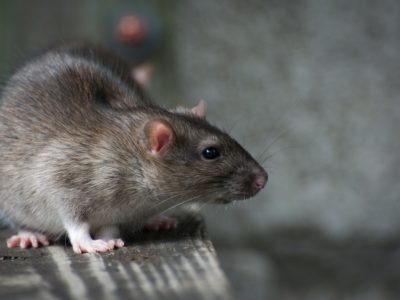
Rat
Omnivores that eat anything!
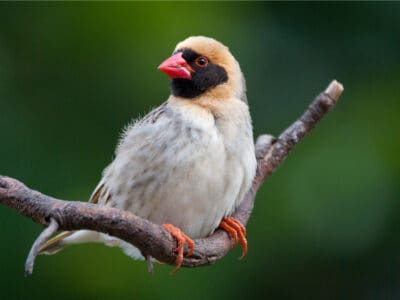
Red-Billed Quelea Bird
Is the most populous bird in the world
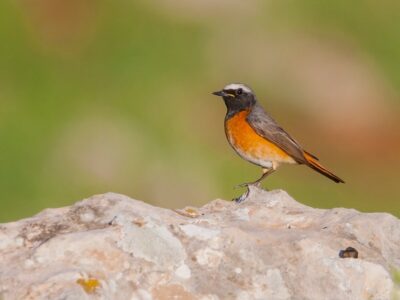
Redstart
They build their nests off the ground in tree holes, cavities, stone walls, and roofs
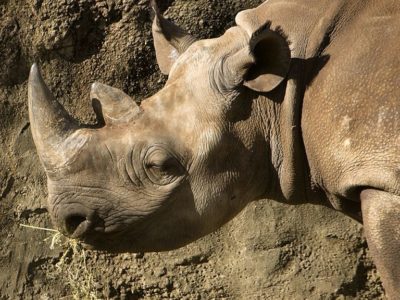
Rhinoceros
It's horns are made from keratin!
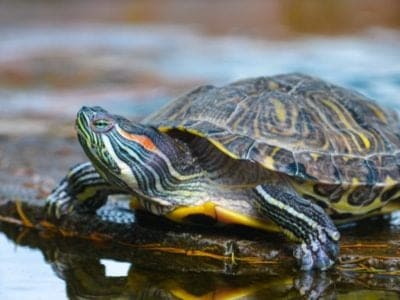
River Turtle
Inhabits freshwater habitats around the world!
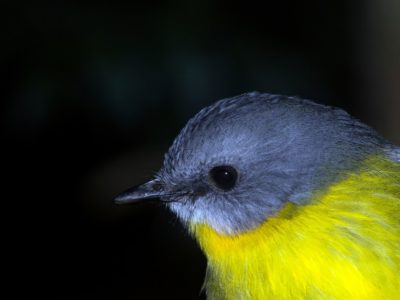
Robin
There are more than 45 species in Australia alone!
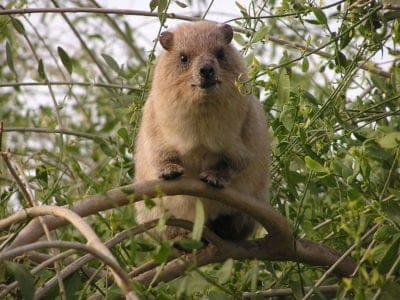
Rock Hyrax
Actually related to Elephants and Manatees!
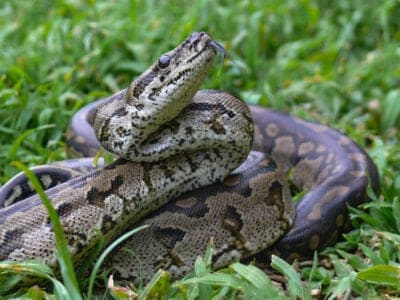
Rock Python
Rock pythons may have crossbred with the escaped Burmese pythons in Florida.
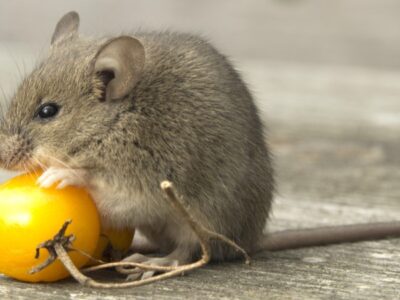
Rodents
The capybara, the world’s largest rodent, likes to be in and around bodies of water. Because of this, the Catholic Church in South America decided that it was a fish, and people were allowed to eat it during Lent and First Fridays.
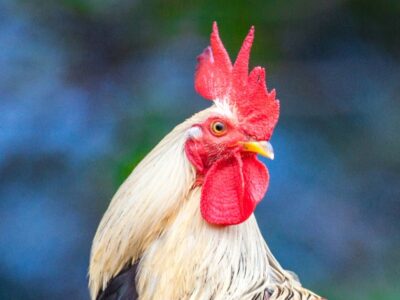
Rooster
Will mate with the entire flock!

Sable Ferret
Ferrets were used during the Revolutionary War to keep down the rat population.
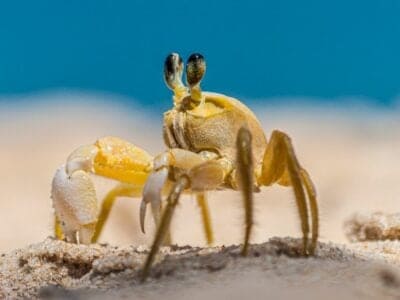
Sand Crab
The sand crab burrows beneath the sand with its tail
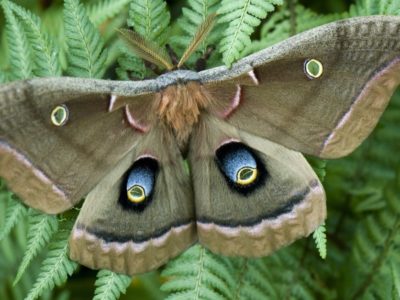
Saturniidae Moth
Some of the largest moths in the world
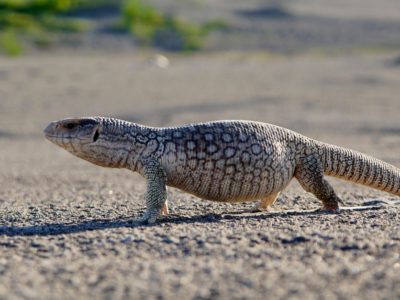
Savannah Monitor
Savannah monitors are one of the most popular lizards in captivity.
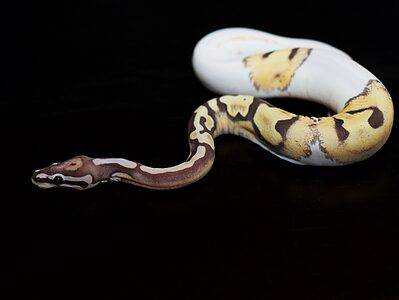
Scaleless Ball Python
Aside from the ocular scales covering each of its eyes, the scaleless ball python's body is completely smooth.
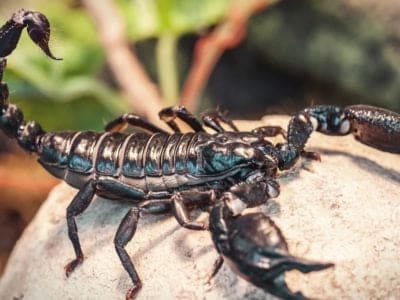
Scorpion
There are around 2,000 known species!
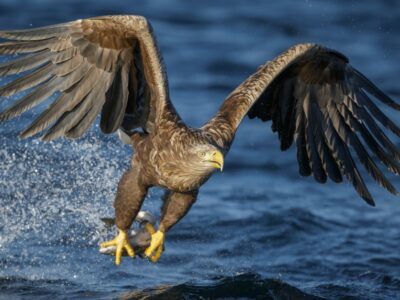
Sea Eagle
The sea eagle tends to mate for life with a single partner
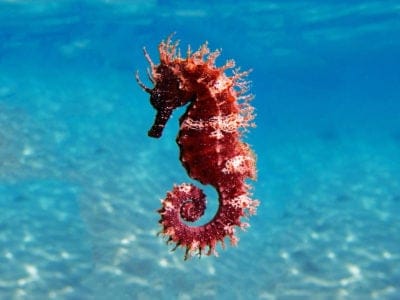
Seahorse
Males give birth to up to 1,000 offspring!
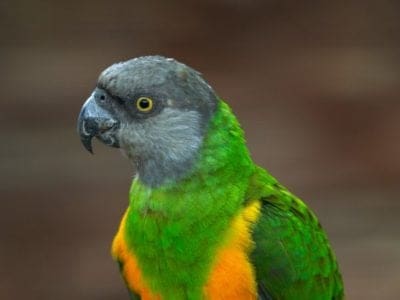
Senegal Parrot
As a pet, the Senegal parrot is capable of "talking" to its owner
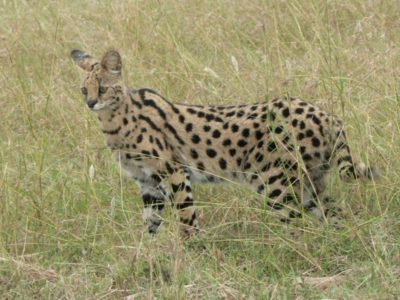
Serval
Can leap more than 1 meter into the air!
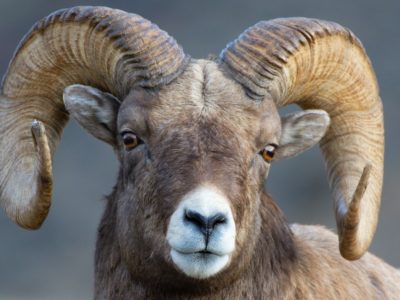
Sheep
Around 35 million in the English countryside!
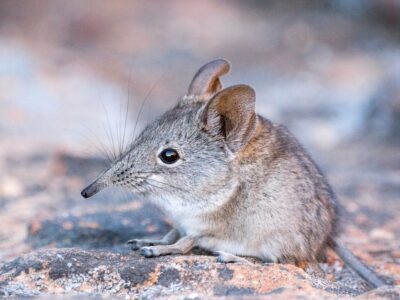
Shrew
The spinal column of the shrew Scutisorex somereni is so strong and reinforced that it can support the weight of an adult human.
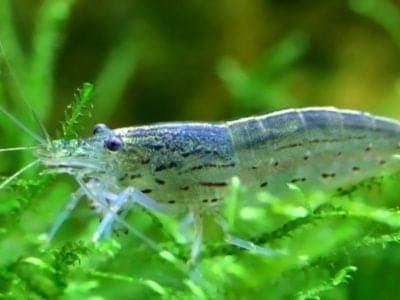
Shrimp
There are 2,000 different species worldwide!
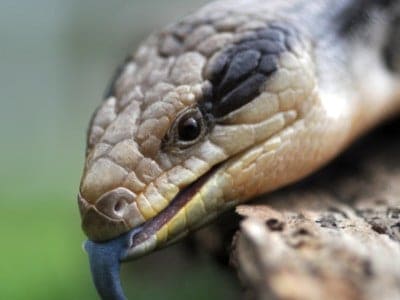
Skink Lizard
Some skinks lay eggs in some habitats while giving birth to skinklets in other habitats.
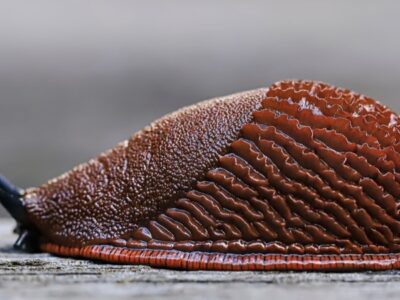
Slug
They glide around on one foot, which is aided by the slime they produce
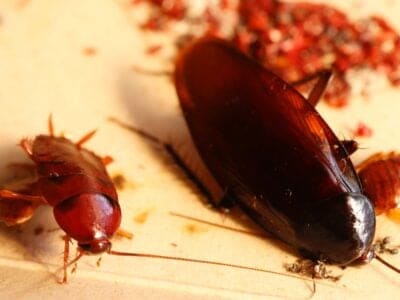
Smokybrown Cockroach
Has up to 45 eggs per egg case
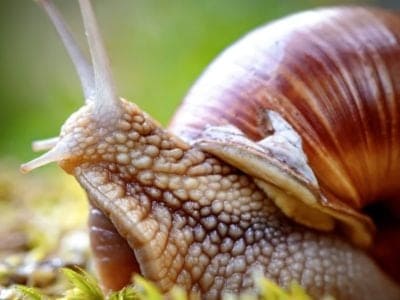
Snail
There are nearly 1,000 different species!
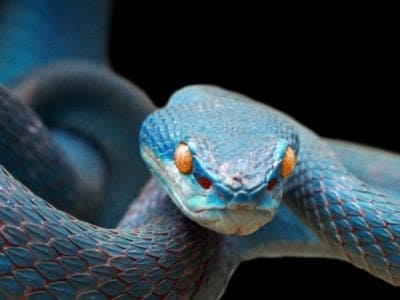
Snake
There are around 4,000 known species worldwide
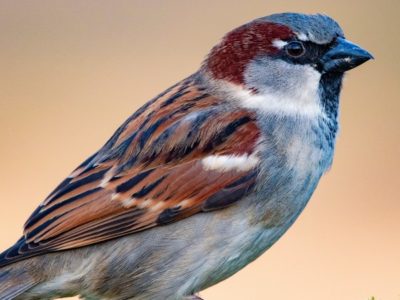
Sparrow
There are 140 different species!
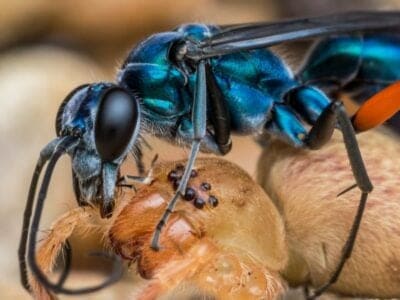
Spider Wasp
They prey on spiders to feed their larvae or they parasitize other spider wasps.
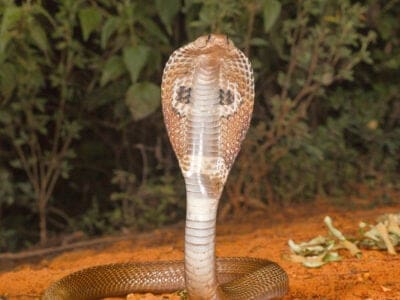
Spitting Cobra
Spitting cobras are types of cobras that can spit venom at predators and prey.

Squirrel
Small rodents found in woodlands worldwide!
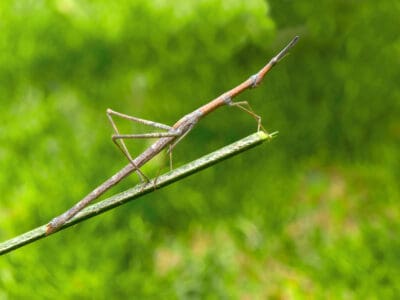
Stick Insect
There are more than 3,000 different species!
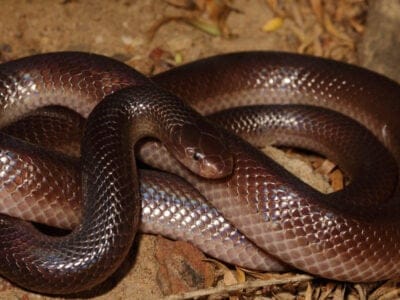
Stiletto Snake
Because of their unique venom delivery system, stiletto snakes are almost impossible to hold safely in the usual way (with fingers behind the head) without being bitten.
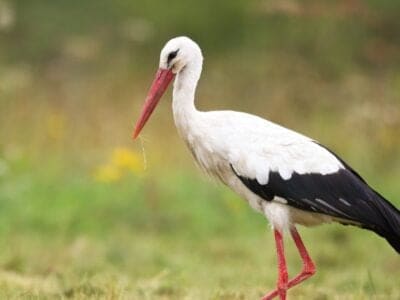
Stork
They can’t sing like other birds.
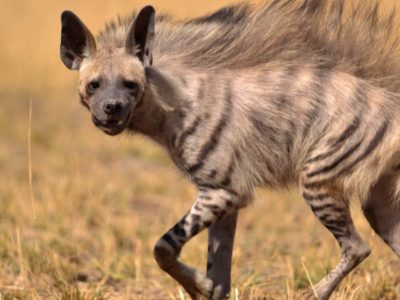
Striped Hyena
The striped hyenas usually mark their territories with the help of the scent gland secretions from their anal pouch.

Sulcata Tortoise
Some cultures in Africa believe the sulcata tortoise is an intermediary between the people and their ancestors and gods.
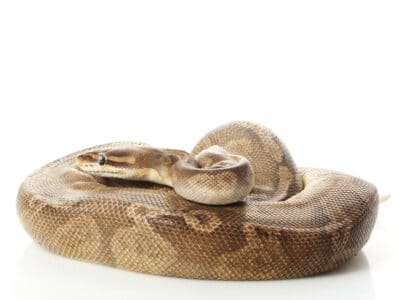
Sunset Ball Python
Sunset ball pythons are bred with several other morphs to get designer colors.
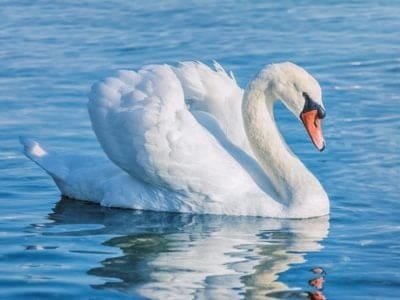
Swan
Populations have been affected by pollution!
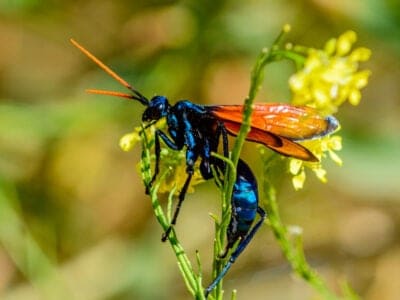
Tarantula Hawk
Tarantula hawks are excellent pollinators, especially for milkweed.
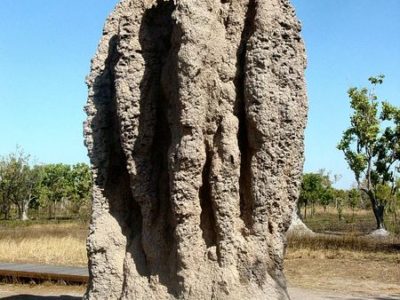
Termite
Their mounds can be up to 9 meters tall!
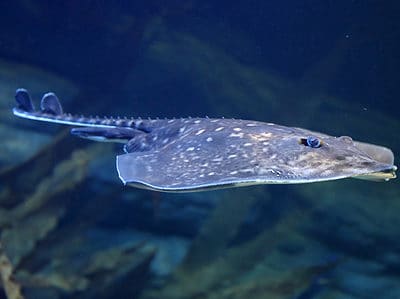
Thornback Ray
The skate with the biggest spines!
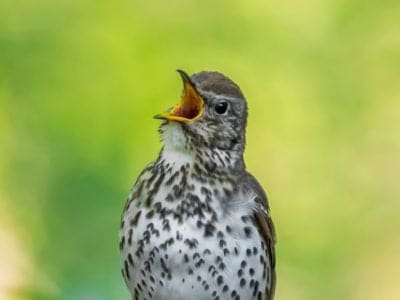
Thrush
The American robin is called the robin because its red breast reminded European settlers of the robin back in the old country.
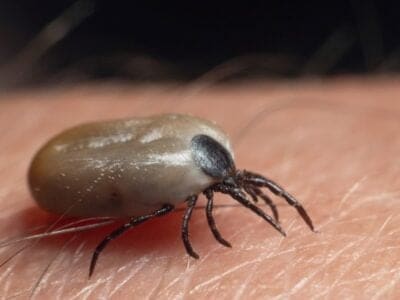
Tick
They inject hosts with a chemical that stops them from feeling the pain of the bite
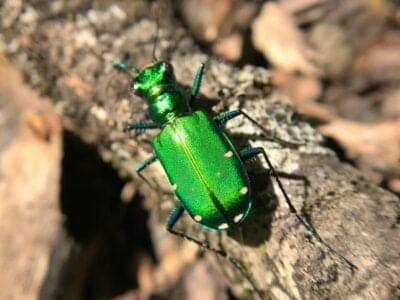
Tiger Beetle
The adult tiger beetle is one of the fastest land insects in the world

Tortoise
Can live until they are more than 150 years old!
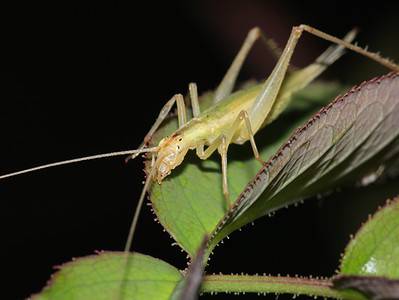
Tree Cricket
They make music with their wings
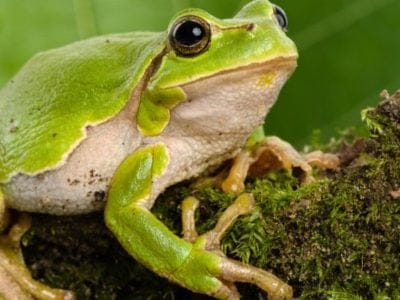
Tree Frog
Found in warmer jungles and forests!
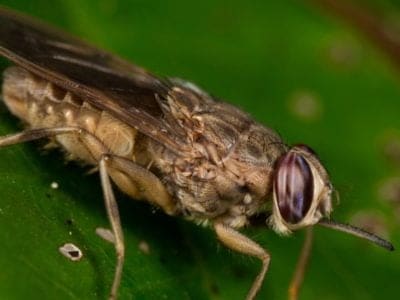
Tsetse Fly
Tsetse flies are large biting flies that live in the tropical regions of Africa.
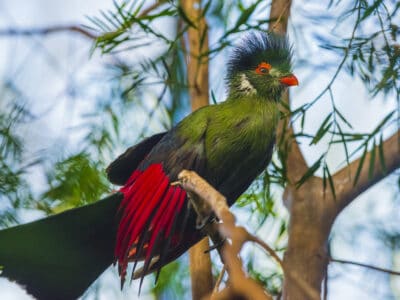
Turaco
Their name means “banana-eater,” but they rarely ever eat bananas.

Turtles
Some species of aquatic turtles can get up to 70 percent of their oxygen through their butt.
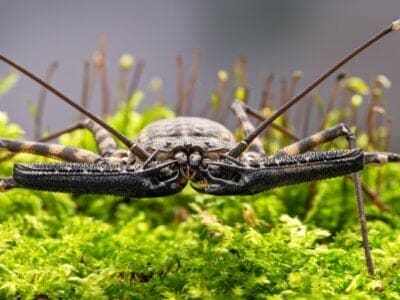
Vinegaroon
Vinegaroons can spray 19 times before the glands are depleted
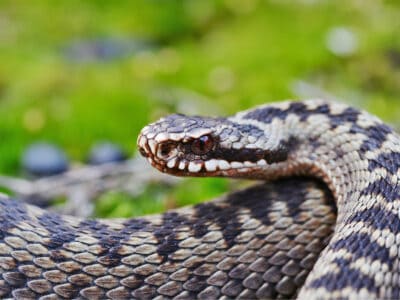
Viper
Vipers are one of the most widespread groups of snakes and inhabit most
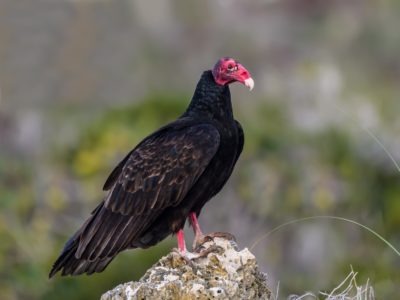
Vulture
There are 30 different species worldwide!
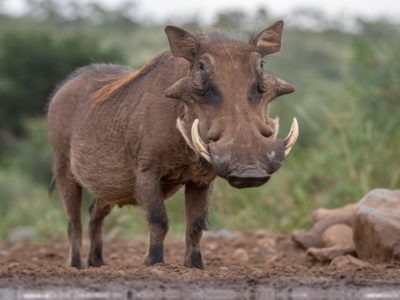
Warthog
Has two sets of tusks on it's face!
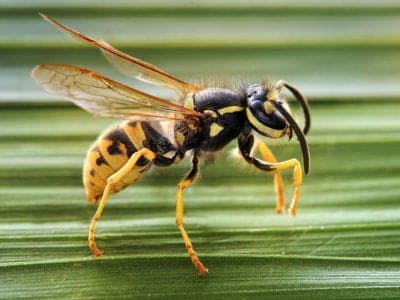
Wasp
There are around 75,000 recognised species!
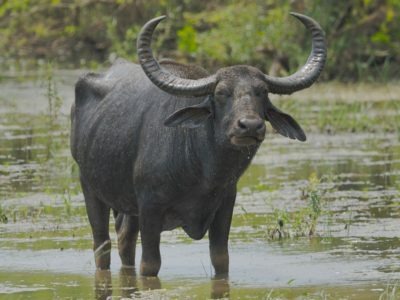
Water Buffalo
Has been domesticated for thousands of years!

White Ferret / Albino Ferrets
There are two different types of white ferrets!
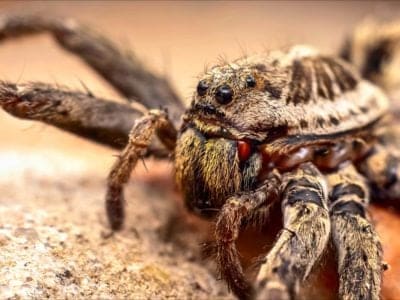
Wolf Spider
Carnivorous arachnid that hunts its prey.
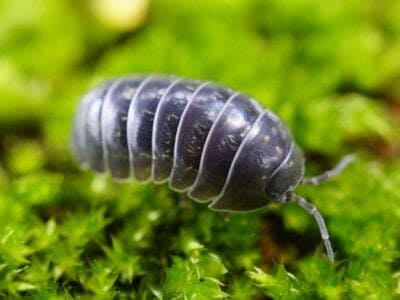
Woodlouse
This animal can roll up into a ball
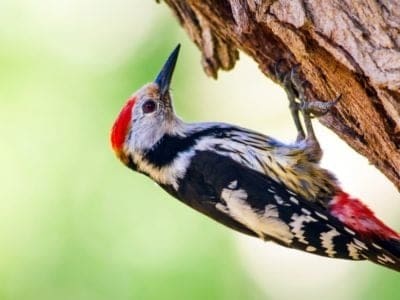
Woodpecker
There are 200 different species!
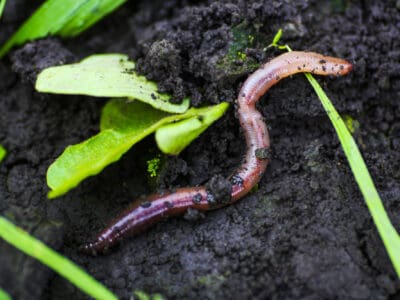
Worm
Doesn’t have eyes.
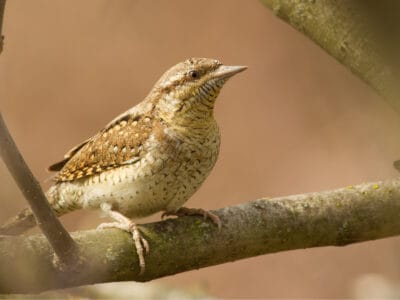
Wryneck
They feign death by making their bodies limp and closing their eyes.
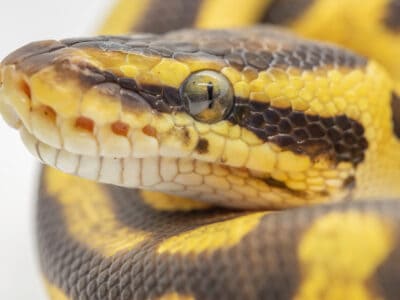
Yellow Belly Ball Python
The yellow belly gene is co-dominant and doesn't completely override other genes.
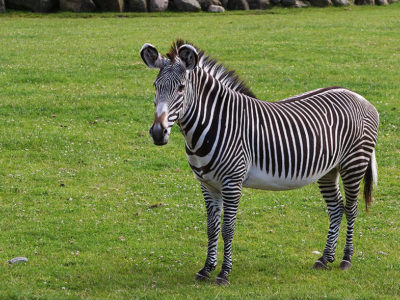
Zebra
Stripe patterns are unique to each individual!
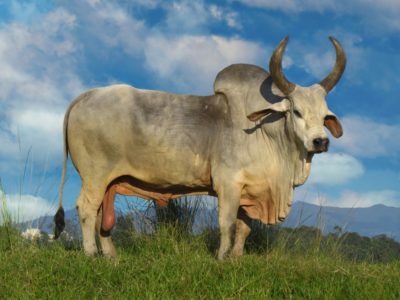
Zebu
There are around 75 different species!
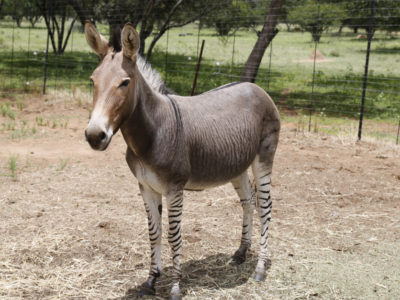
Zonkey
The offspring of Zebra and Donkey parents!
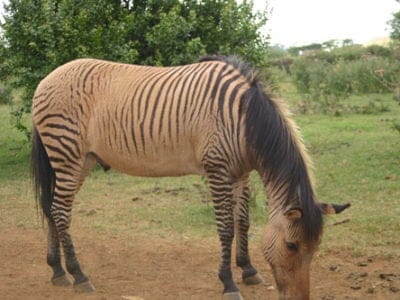
Zorse
The offspring of a Zebra and Horse parents!
Nigerian Animals List
- Aardvark
- African Bush Elephant
- African Civet
- African Clawed Frog
- African Elephant
- African Fish Eagle
- African Golden Cat
- African Grey Parrot
- African Jacana
- African Palm Civet
- African Tree Toad
- African Wild Dog
- American Cockroach
- Ant
- Antelope
- Armyworm
- Axanthic Ball Python
- Baboon
- Banana Cinnamon Ball Python
- Banana Spider
- Barb
- Barn Owl
- Barn Swallow
- Bat
- Bed Bugs
- Bee
- Beetle
- Bichir
- Bird
- Biscuit Beetle
- Black Mamba
- Black Pastel Ball Python
- Black Widow Spider
- Brazilian Treehopper
- Brown-banded Cockroach
- Brown Dog Tick
- Buffalo
- Bumblebee
- Bush Baby
- Bush Viper
- Butterfly
- Caecilian
- Caracal
- Carpenter Ant
- Carpet Viper
- Cat
- Caterpillar
- Catfish
- Centipede
- Chameleon
- Chicken
- Chimpanzee
- Cichlid
- Cinnamon Ball Python
- Cockroach
- Codling Moth
- Common Buzzard
- Common Furniture Beetle
- Common House Spider
- Cormorant
- Cosmic Caterpillar
- Cow
- Crab
- Crab Spider
- Crane
- Cricket
- Crocodile
- Crocodylomorph
- Cross River Gorilla
- Crow
- Cuckoo
- Desert Ghost Ball Python
- Desert Locust
- Dog
- Dog Tick
- Donkey
- Dormouse
- Dragonfly
- Duck
- Dung Beetle
- Dwarf Crocodile
- Earthworm
- Earwig
- Eel
- Egyptian Goose
- Egyptian Vulture
- Electric Catfish
- Elephant
- Elephant Shrew
- Enchi Ball Python
- Falcon
- False Widow Spider
- Fiddler Crab
- Fire Ball Python
- Firefly
- Firefly Ball Python
- Flamingo
- Flea
- Fly
- Forest Cobra
- Fox
- Freeway Ball Python
- Frog
- Fruit Bat
- Fruit Fly
- Fulvous Whistling Duck
- Gaboon Viper
- Gazelle
- Gecko
- Gerbil
- German Cockroach
- Giant African Land Snail
- Glass Lizard
- Glowworm
- Gnat
- Goat
- Golden Oriole
- Goliath Beetle
- Gorilla
- Grasshopper
- Green Bee-Eater
- Guinea Fowl
- Gypsy Moth
- Hamster
- Hare
- Hartebeest
- Hawk Moth Caterpillar
- Hedgehog
- Heron
- Hippopotamus
- Honey Badger
- Honey Bee
- Hoopoe
- Horse
- Horsefly
- Housefly
- Human
- Huntsman Spider
- Hyena
- Ibis
- Insects
- Jacana
- Jack Crevalle
- Jackal
- Jumping Spider
- Killer Clown Ball Python
- Kingfisher
- Klipspringer
- Ladybug
- Lappet-faced Vulture
- Lavender Albino Ball Python
- Leech
- Leopard
- Liger
- Lion
- Lizard
- Locust
- Maggot
- Magpie
- Marabou Stork
- Mayfly
- Mealybug
- Millipede
- Mojave Ball Python
- Mole
- Mongoose
- Mongrel
- Monitor Lizard
- Monkey
- Moorhen
- Mosquito
- Moth
- Mouse
- Mule
- Nematode
- Nigerian Goat
- Nightingale
- Nile Crocodile
- Nile Monitor
- Nile Perch
- No See Ums
- Northern Pintail
- Olive Baboon
- Orange Dream Ball Python
- Orb Weaver
- Oribi
- Ortolan Bunting
- Osprey
- Otter
- Owl
- Panda Pied Ball Python
- Pangolin
- Parakeet
- Parrot
- Patas Monkey
- Peregrine Falcon
- Pheasant
- Pigeon
- Pompano Fish
- Praying Mantis
- Puff Adder
- Quail
- Rabbit
- Rainbow Kribs (Kribensis)
- Rat
- Red-Billed Quelea Bird
- Redstart
- Rhinoceros
- River Turtle
- Robin
- Rock Hyrax
- Rock Python
- Rodents
- Rooster
- Sable Ferret
- Sand Crab
- Saturniidae Moth
- Savannah Monitor
- Scaleless Ball Python
- Scorpion
- Sea Eagle
- Seahorse
- Senegal Parrot
- Serval
- Sheep
- Shrew
- Shrimp
- Skink Lizard
- Slug
- Smokybrown Cockroach
- Snail
- Snake
- Sparrow
- Spider Wasp
- Spitting Cobra
- Squirrel
- Stick Insect
- Stiletto Snake
- Stork
- Striped Hyena
- Sulcata Tortoise
- Sunset Ball Python
- Swallowtail Butterfly
- Swan
- Tarantula Hawk
- Termite
- Thornback Ray
- Thrush
- Tick
- Tiger Beetle
- Tortoise
- Tree Cricket
- Tree Frog
- Tsetse Fly
- Turaco
- Turtles
- Vinegaroon
- Viper
- Vulture
- Warthog
- Wasp
- Water Buffalo
- White Ferret / Albino Ferrets
- Wolf Spider
- Woodlouse
- Woodpecker
- Worm
- Wryneck
- Yellow Belly Ball Python
- Zebra
- Zebu
- Zonkey
- Zorse
Nigeria FAQs (Frequently Asked Questions)
Are There Tigers in Nigeria?
No, there are no tigers in Nigeria. There have never been any tigers in Nigeria.
What is the most common animal in Nigeria?
The most common animal in Nigeria is domestic dogs. Domestic dogs who are native to Nigeria are called local dogs. Those that people have imported into the country are called foreign dogs. Some of the most common breeds in Nigeria include Rottweilers, German shepherds, Boerboels, and Caucasian shepherds. Often, those who are looking for a smaller domestic dog get a Lhasa apso.
What animals live in Nigeria?
Over 44,000 different types of animals live in Nigeria. Of those, about 50% are insects. Mammals, including great apes, hippopotamuses, and West African wild dogs are all found there. There are plenty of mammals to see, but many live in remote areas.
Are there lions in Nigeria?
While you could find lions across Northern Nigeria in the past, they have lost over 90% of their territory. Today, they live in Kainji Lake National Park and the Yankari Game Reserve. The decline in the number of natural prey by poaching is the primary cause. Agricultural expansion has also led more farmers to shoot or poison lions. There may be less than 100 lions between the two populations. Important work is going on there to try to protect these prides.




